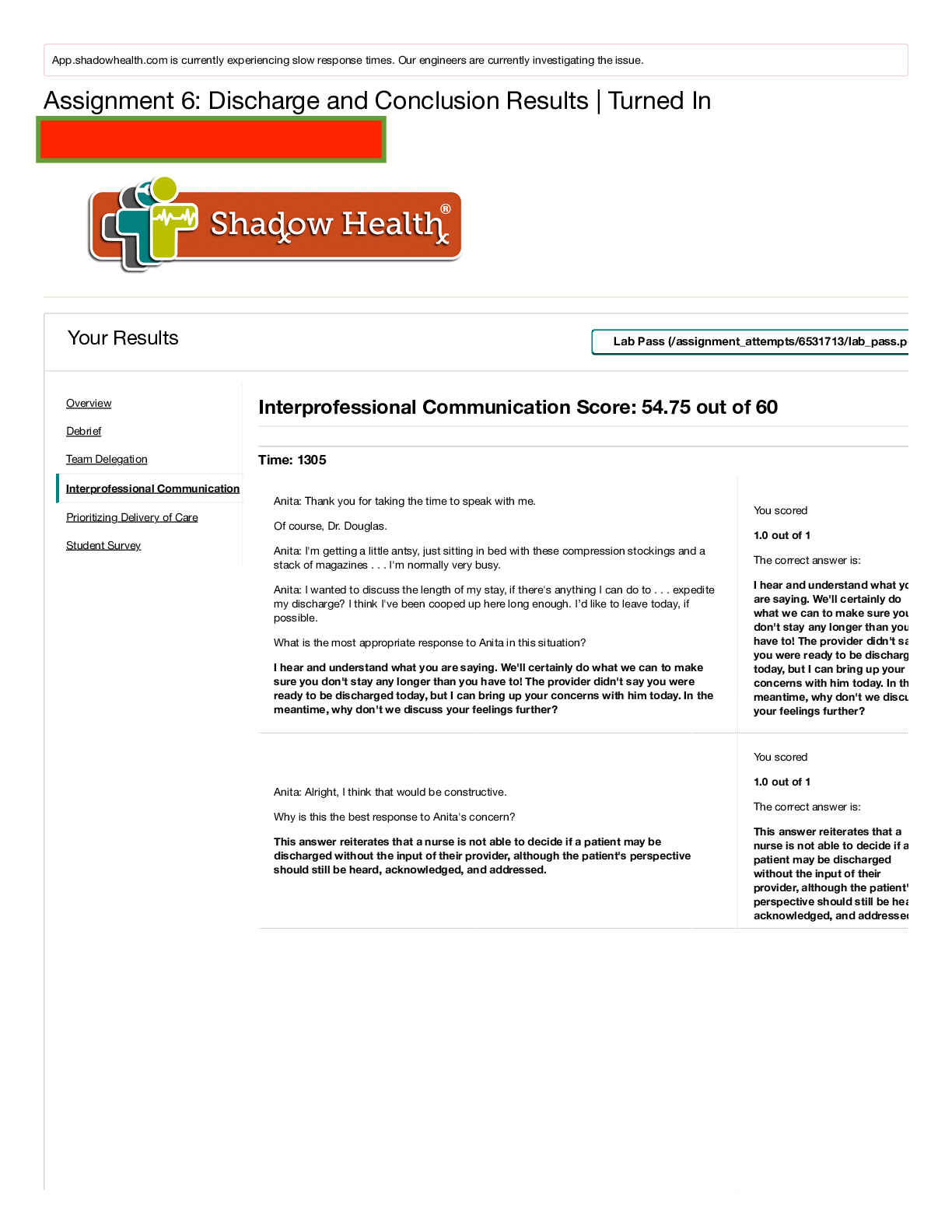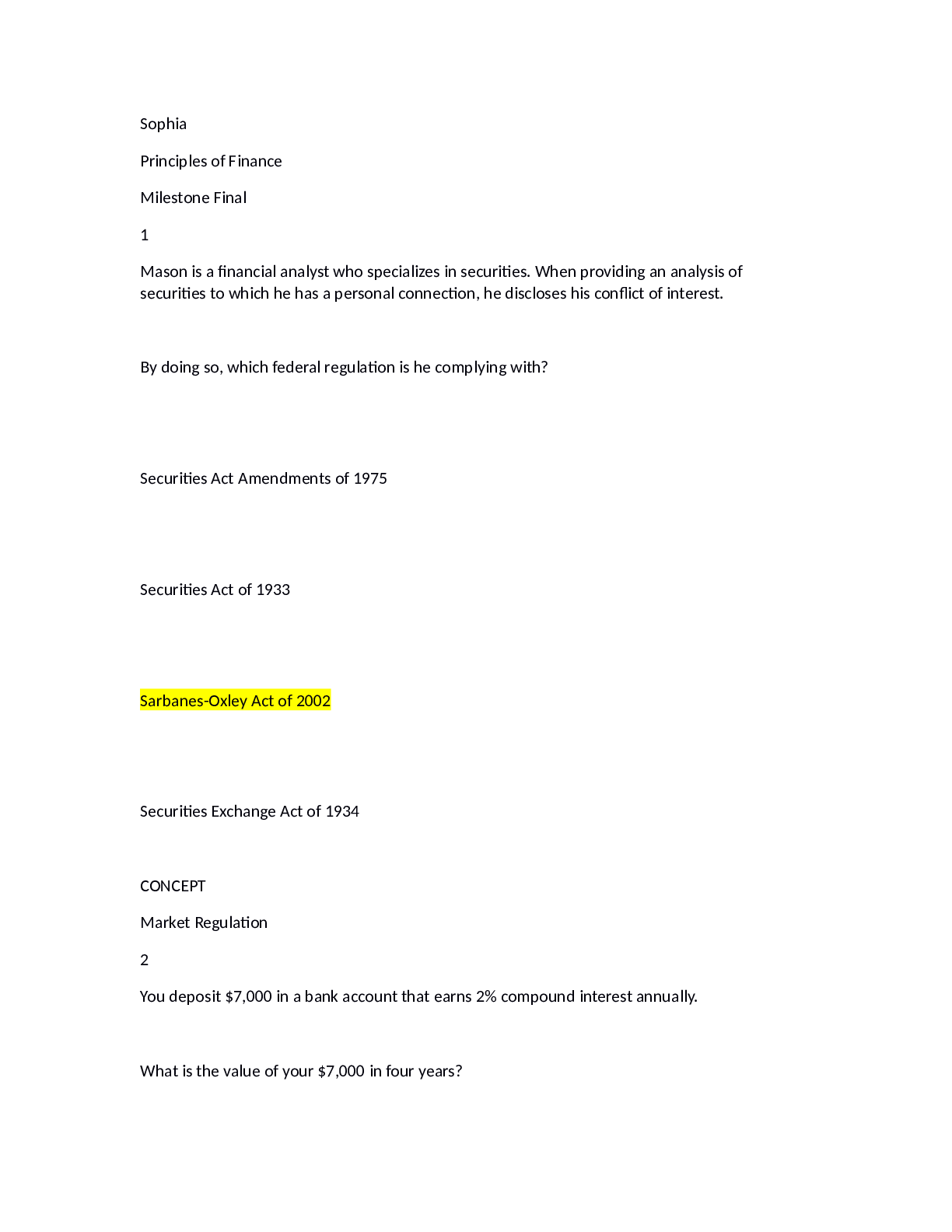*NURSING > STUDY GUIDE > HESI A2 Critical Thinking Questions and Answers (Summer 2020) A++ all answers correct. (All)
HESI A2 Critical Thinking Questions and Answers (Summer 2020) A++ all answers correct.
Document Content and Description Below
HESI A2 Critical Thinking Questions 1. The Patient: A 65-year- old male. The Situation: The family brings the patient to the emergency room because he just took an entire bottle of pills. The Question... : What action should the nurse take first? 2. The Patient: An 80 year-old male who has used continuous oxygen for the past three years. The Situation: While making a home visit, the wife tells the nurse that her husband was doing well on 2 litres of oxygen per minute until late last night when he developed severe shortness of breath on the way to the bathroom. The Question: What action should the nurse take first? 3. The Patient: A 41-year-old male. The Situation: The patient is complaining of severe stomach pain and states that he has been “vomiting all the time.” The Question: What should the nurse do first? 4. The Patient: The wife of a wealthy owner of the town’s bank. The Situation: The patient and her husband arrive on the unit. While orienting the patient to the hospital room, the nurse notices that the patient has placed a large amount of cash and some expensive earrings in the drawer of the bedside table. The Question: What is the best action for the nurse to take? 5. The Patient: A 45-year-old female who is 5’ 2” tall, weighs 200 pounds, and has smoked since age 21. The Situation: The patient comes to the clinic with a complaint of “leg pain.” The Question: It is most important for the nurse to obtain information about which previous occurrence? 6. The Patient: A 61-year-old female. The Situation: The patient has a fever of unknown origin. The nurse administered a fever-reducing medication 30 minutes ago. At this time there has been no decrease in the patient’s fever. The Question: What action would be best for the nurse to take? 7. The Patient: A 70-year-old male who is relatively healthy. The Situation: A liquid mediation is prescribed for this patient. The Question: Prior to administering the prescribed medication, what intervention has the highest priority? 8. The Patient: A fifty-eight-year-old female. The Situation: While the nurse is offering the patient her morning medications, she tells the nurse that she does not recall ever taking a pill that was pink-colored. The Question: What should the nurse do in response to this patient’s comment? 9. The Patients: 1. A 63-year-old with a burn on the left lower leg who is complaining of pain. 2. A 45-year-old with pneumonia, complaining of shortness of breath. 3. A 31-year-old with abdominal pain who has just vomited blood. 4. An 88-year-old who has right-sided paralysis and wants to be helped to the bathroom immediately. The Situation: The nurse is caring for these patients. The Question: Who should the nurse see first? 10. The Patients: 1. A 13-year-old female with a kidney infection who reports that there is “lots of blood” in her urine. 2. An 18-year-old male with acute alcohol poisoning who is seeing “bugs on the walls.” 3. A 21-year-old female with inflammatory bowel disease who has soaked a dressing three hours after surgery. 4. A 25-year old male who is sobbing in his room after being told that he has testicular cancer. The Situation: The nurse is caring for these four patients. The Question: Who should the nurse see first? 11. The Patients: 1. A 42-year-old with diabetes who is blind and is asking to get up and moved to a chair. 2. An 88-year-old with lower body paralysis who wants to be turned in bed. 3. A 17-year-old with asthma who smokes and has been in the bathroom for 30 minutes. 4. A 55-year-old with cardiac disease who tells the nurse, “Get the TV fixed or I am leaving this place.” The Situation: The nurse is caring for these four patients. The Question: Which patient should the nurse see first? 12. The Patient: An elderly female accompanied by her middle-aged son. The Situation: The patient is being discharged after 15-day stay on the medical unit, and the son offers the nurse a box of candy as a gesture of thanks for caring for his mother. The Question: What should the nurse do in response to the offer of this gift? 13. The Patient: A 25-year-old female who has smoked since age 12. The Situation: The patient is complaining of “skipped heart beats.” The Question: Which instruction is most important for the nurse to provide this patient? 14. The Patient: A frail 88-year-old male who has recently become slightly confused. The Situation: The nurse is making a home visit and assesses the safety features of the home environment. The Question: Which suggestion would be most important for the nurse to provide the family? 15. The Patient: A 55-year-old female with a family history of hypertension. The Situation: The patient is concerned about her health and states, “I have had severe headaches for the last six months. I think I might have high blood pressure.” The nurse determines that the woman’s blood pressure is 138/86 (high normal). The Question: What action would be best for the nurse to take? 16. The Patient: A 35-year-old female with a history of asthma. The Situation: The patient has been using a steroid inhaler because she is short of breath. However, she states that her shortness of breath is “no better.” The Question: What is the most important information for the nurse to obtain? 17. The Patient: An older confused male. The Situation: At 3 a.m. the patient, who thinks he is in the bathroom, defecates in the bed. The bed needs to be changed. However, there are no bed sheets on the nursing unit. The Question: What action should the nurse take first? 18. The Patient: A 25-year-old female hospitalized for anorexia. The Situation: The charge nurse denies the patient permission to pass dinner trays. The Question: What is the most important reason for the nurse to deny this anorexic patient permission to pass the dinner trays? 19. The Patient: A 75-year-old male who had a heart attack four years ago. The Situation: The patient tells the nurse, “Even though I stopped smoking 10 years ago, I have a terrible cough.” The Question: What action should the nurse take first? 20. The Patient: A 70-year-old man dying of prostate cancer. The Situation: Nurse “A,” who is charge of a medical unit, notices that a dying patient continues to moan in pain after receiving intravenous injections of morphins whenever Nurse “B” is caring for him. Nurse “A” suspects that Nurse “B” may be diluting the patient’s dose and taking the morphine to feed an addiction. The Question: What should Nurse “A” do in this situation? 21. The Patient: A 29-year-old male. The Situation: A lower leg cast was applied yesterday to a fractured leg. Today the patient tells the nurse that he is in “terrible pain.” The Question: Which action is most important for the nurse to take? 22. The Patient: A 54-year-old male who weighs 275 pounds. He is 5’ 10” tall and has many family members who have died of heart disease. The Situation: He comes to the clinic stating that he has had several episodes of “chest pain” in the last week. The Question: What is the most important action for the nurse to take? 23. The Patient: A 7-year-old child. The Situation: A nurse arrives with an injection containing preoperative sedation that must be given to the child now. The child asks the nurse if the shot will hurt. The Question: What response should the nurse offer to this child? 24. The Patient: A 35-year-old female. The Situation: The patient is admitted with a diagnosis of abdominal pain and diarrhea. The Question: Which action should the nurse take first? 25. The Patient: A 51-year-old male. The Situation: The patient is pale, has dark circles under his eyes, and responds to questions with a soft, low voice. He tells the nurse that he has not slept well for months, but denies any type of pain. The Question: What information is most important for the nurse to obtain? 26. The Patient: A 19-year-old male who has previously been healthy. The Situation: The patient complains that he is losing weight despite “eating all the time.” The Question: Considering this patient’s age and complaint, which diagnostic test is likely to provide the most important information? 27. The Patient: An adult with diabetes mellitus who was just given a morning does of insulin which lowers the blood sugar. The Situation: The patient’s breakfast tray arrives, and the nurse notices that the pancake syrup and sugar packets have not been substituted with products containing artificial sweeteners. The Question: What should the nurse do first in this situation? 28. The Patient: A terminally ill male. The Situation: Nurse “A” and an unidentified woman ride the elevator to the fifth floor, Nurse “B” joins them on the elevator and exclaims that a code has just been called on a male patient on the fifth floor, and he is not expected to live. The Question: What should Nurse “A” do in this situation? 29. The Patient: An elderly confused female in a semi-private room on a hospital medical unit. The Situation: The patient is yelling loudly at 3:30a.m. and awakens her roommate, who calls the nurse for assistance. The Question: What should the nurse do first in this situation? 30. The Patient: A 75-year-old male. The Situation: The family brings the patient to the emergency room because they witnessed him have a seizure. The patient is hallucinating, and loudly cries out to the nurse, “Get those dogs out of here!” The nurse places the patient in a cubicle where he can be seen from the nurse’s station. The Question: What action would be best for the nurse to take? [Show More]
Last updated: 1 year ago
Preview 1 out of 6 pages
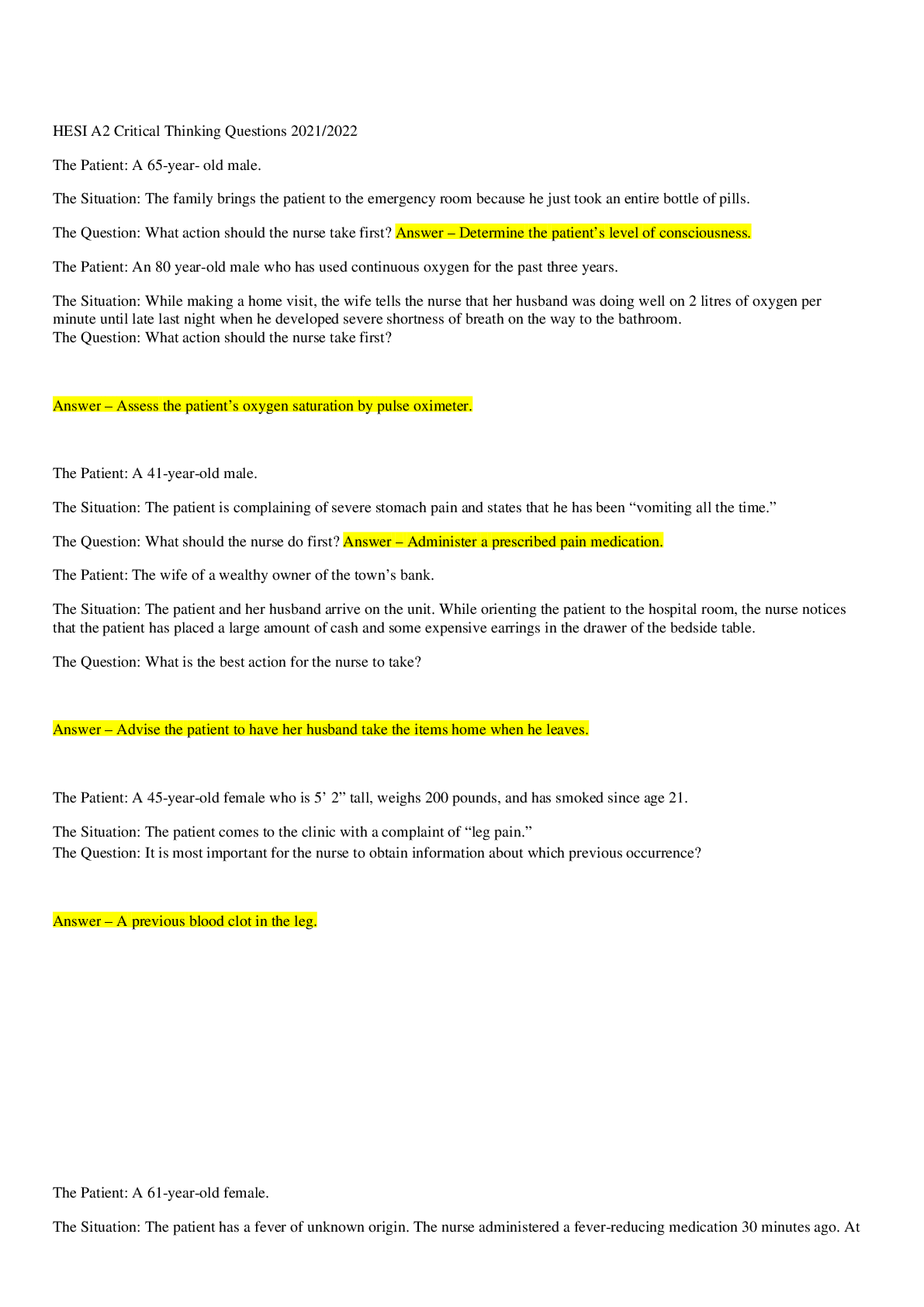
Also available in bundle (2)

[BUNDLE]HESI EXIT RN EXAM V1-V7 2020 Test Bank, HESI EXIT RN EXAM V1-V7 (guaranteed success, 100% rated by students and expert tutors)
HESI A2 Critical Thinking Questions and Answers (Summer 2020) A++ all answers correct. HESI EXIT RN EXAM V1-V7 2020 Test Bank, HESI EXIT RN EXAM V1-V7 (guaranteed success, 100% rated by students an...
By Rixx Dennis 3 years ago
$45.5
16

HESI A2 All Subjects Questions and Answers 2022
HESI A2 All Subjects Questions and Answers 2022////////////HESI A2 All Subjects Questions and Answers 2022///////HESI A2 All Subjects Questions and Answers 2022
By Rixx Dennis 3 years ago
$39.5
16
Reviews( 0 )
Document information
Connected school, study & course
About the document
Uploaded On
Jan 25, 2021
Number of pages
6
Written in
Additional information
This document has been written for:
Uploaded
Jan 25, 2021
Downloads
0
Views
139

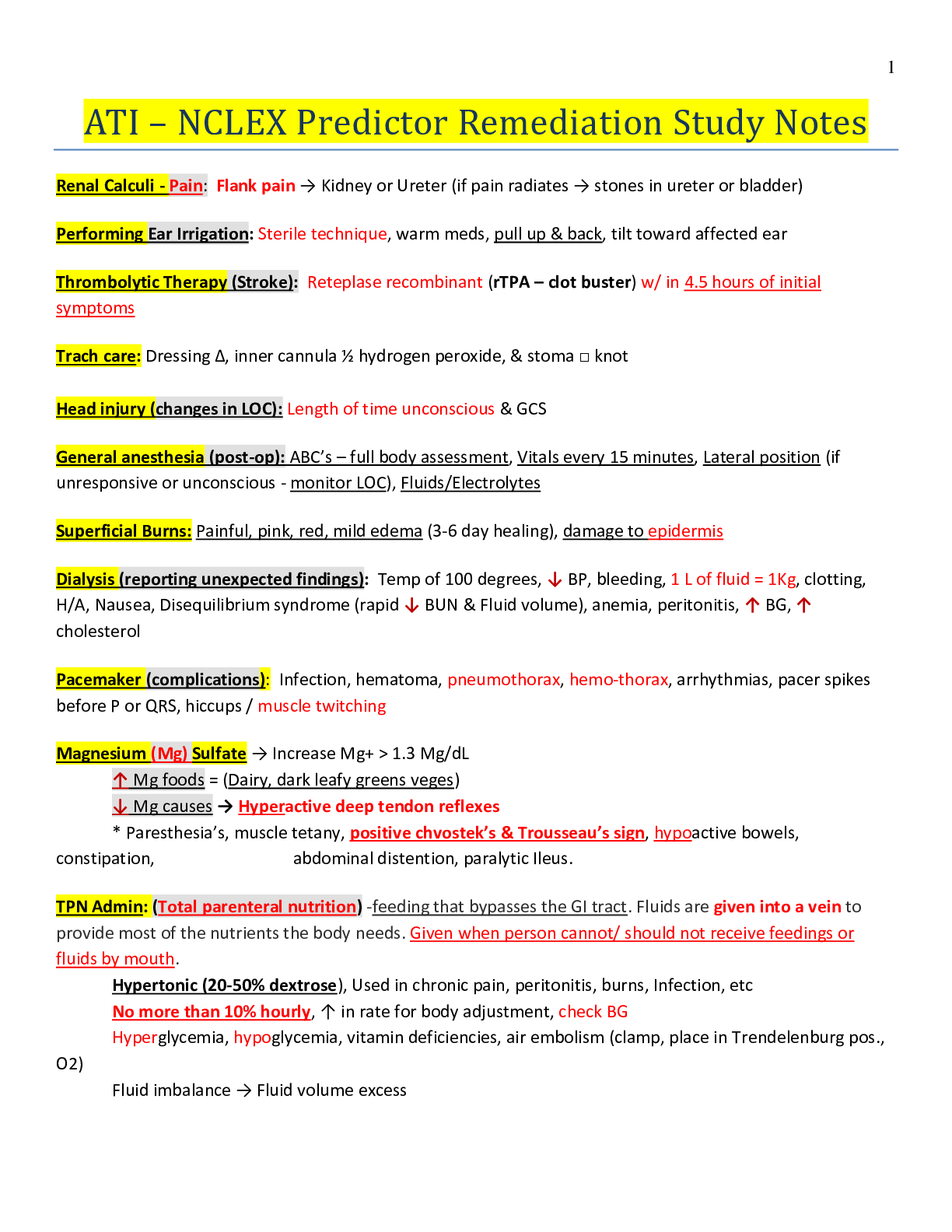
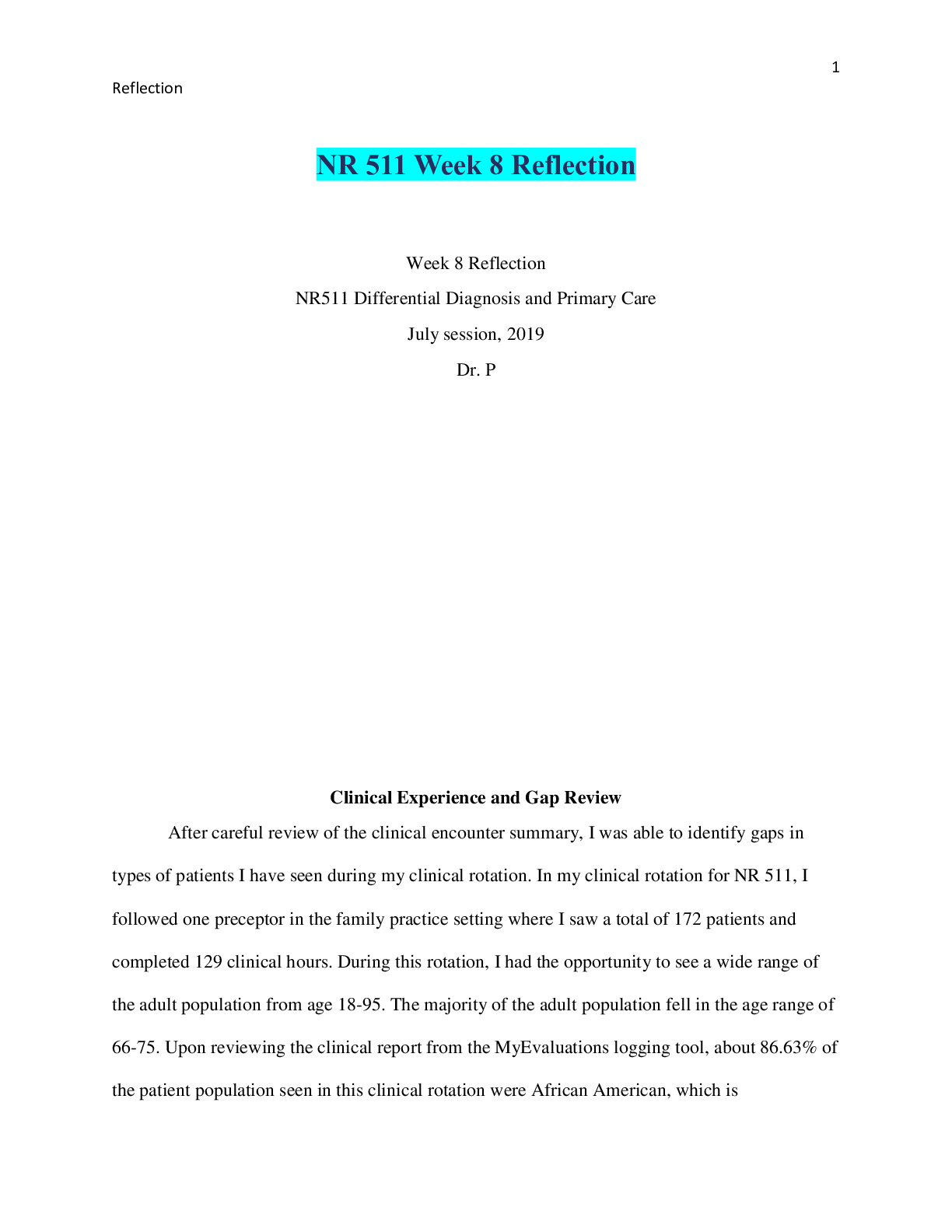

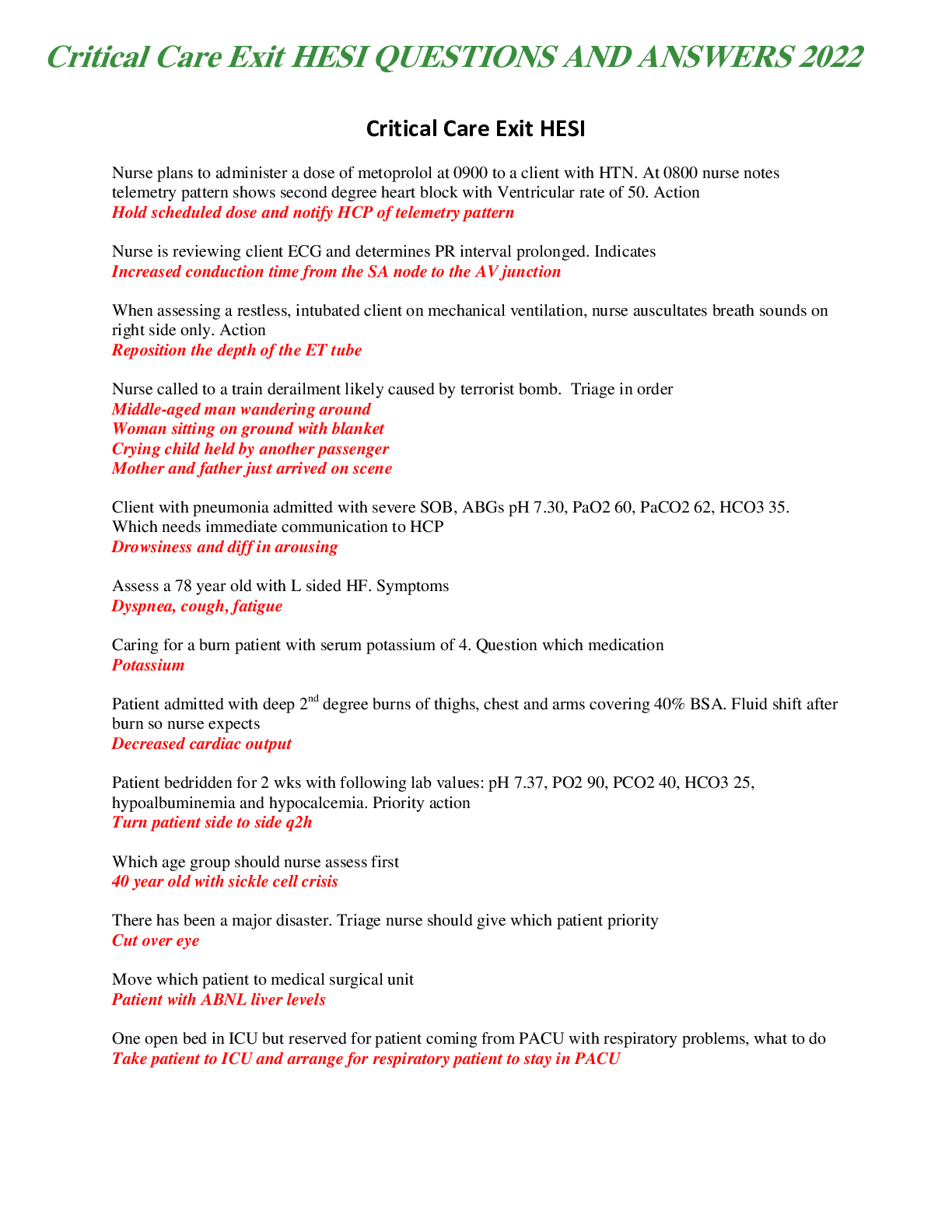
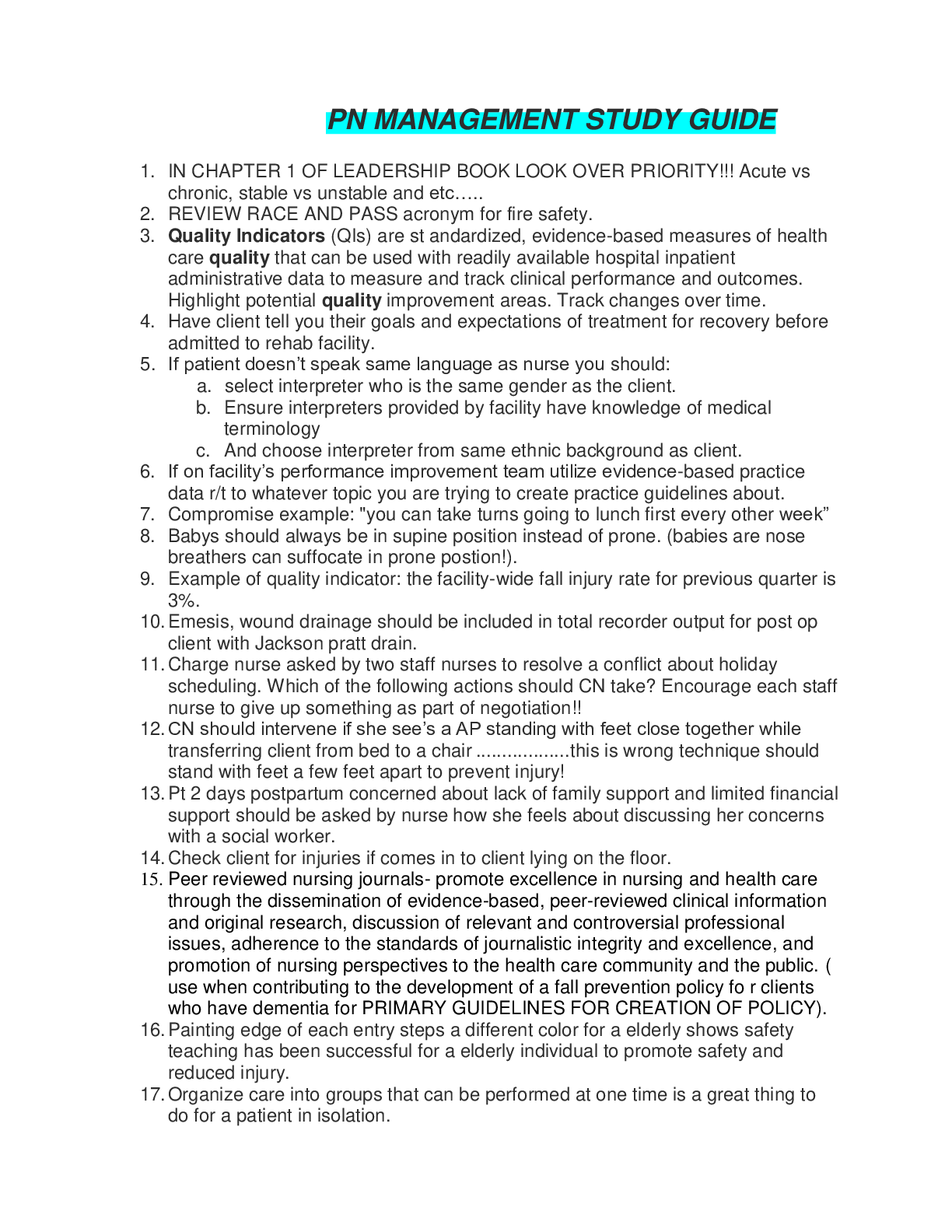

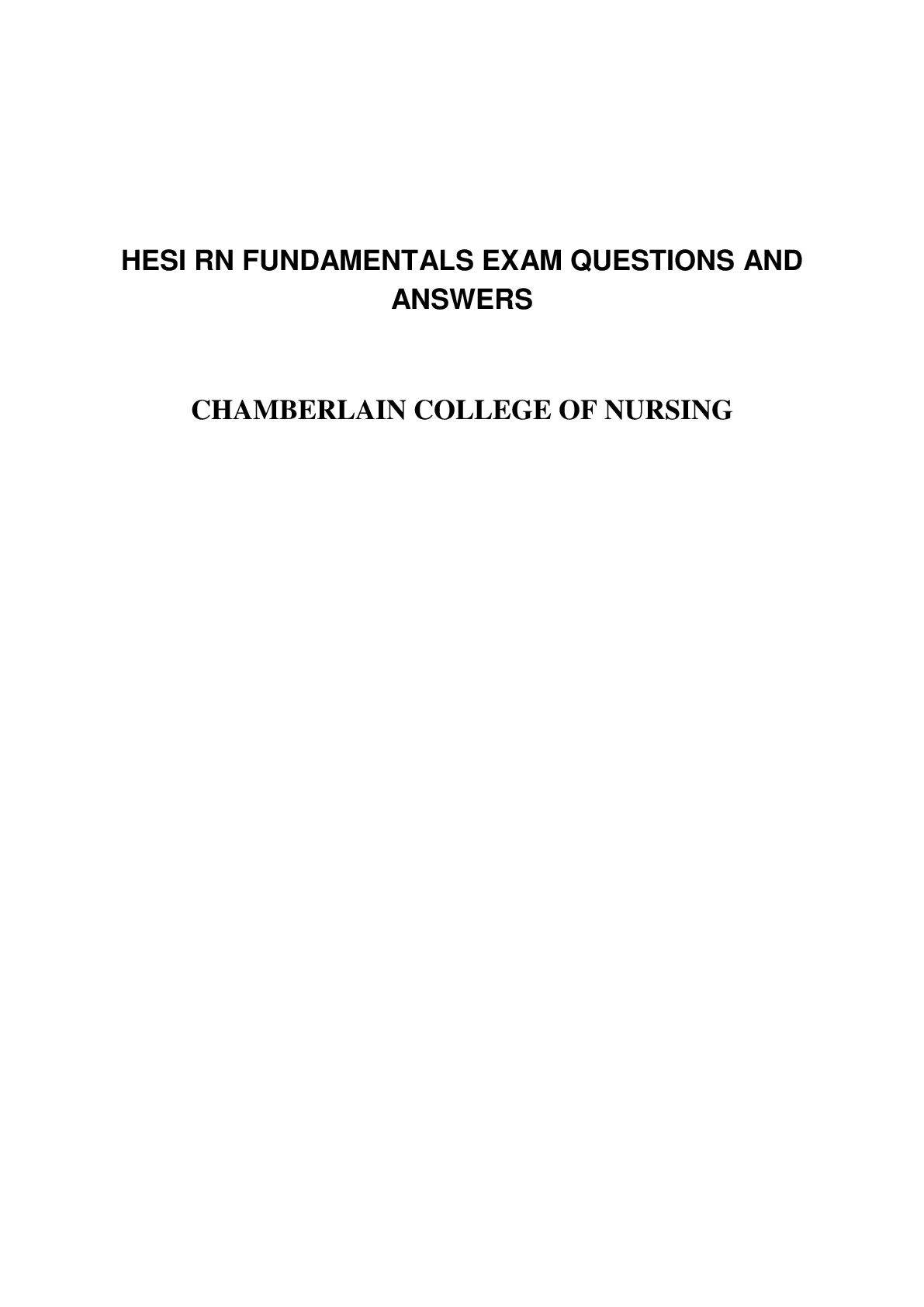
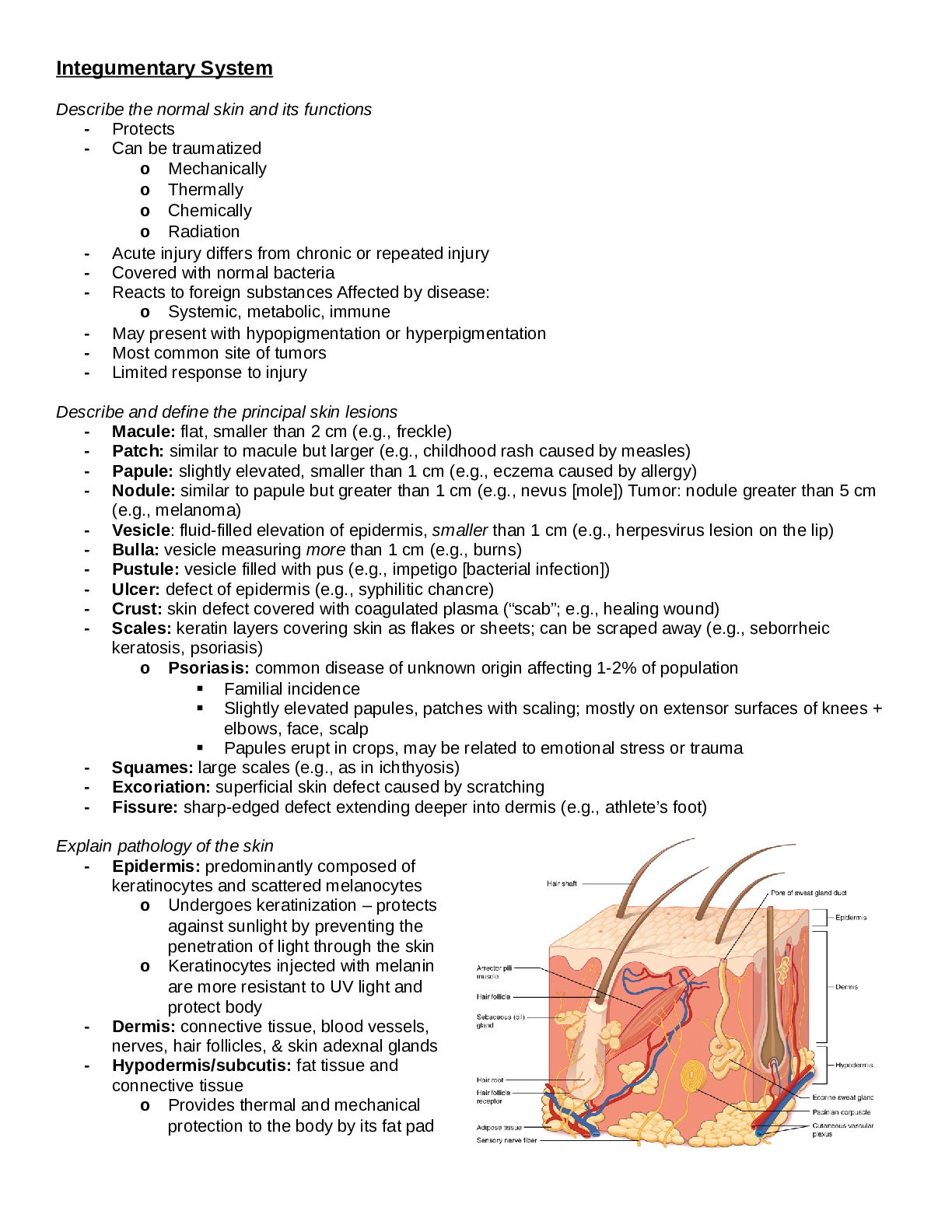
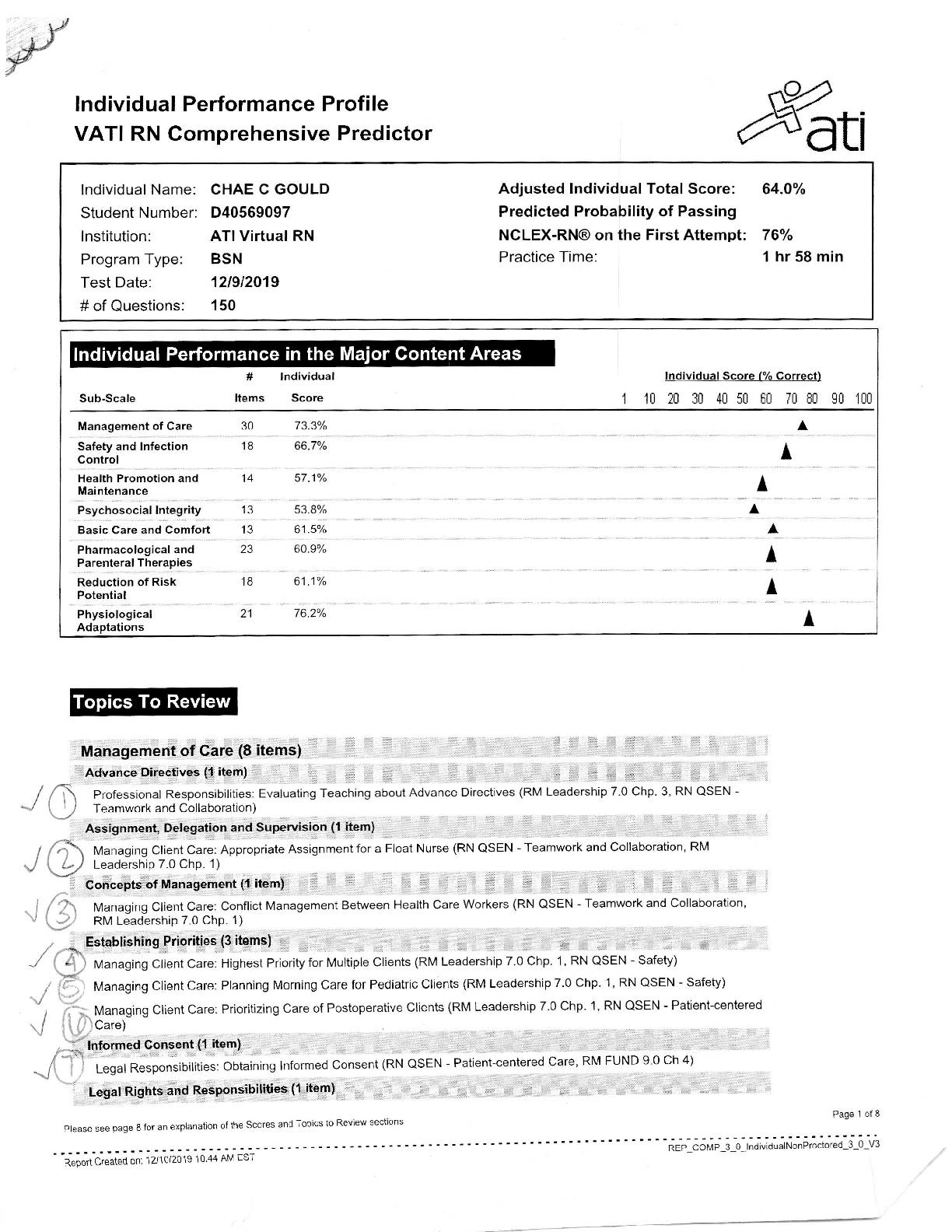
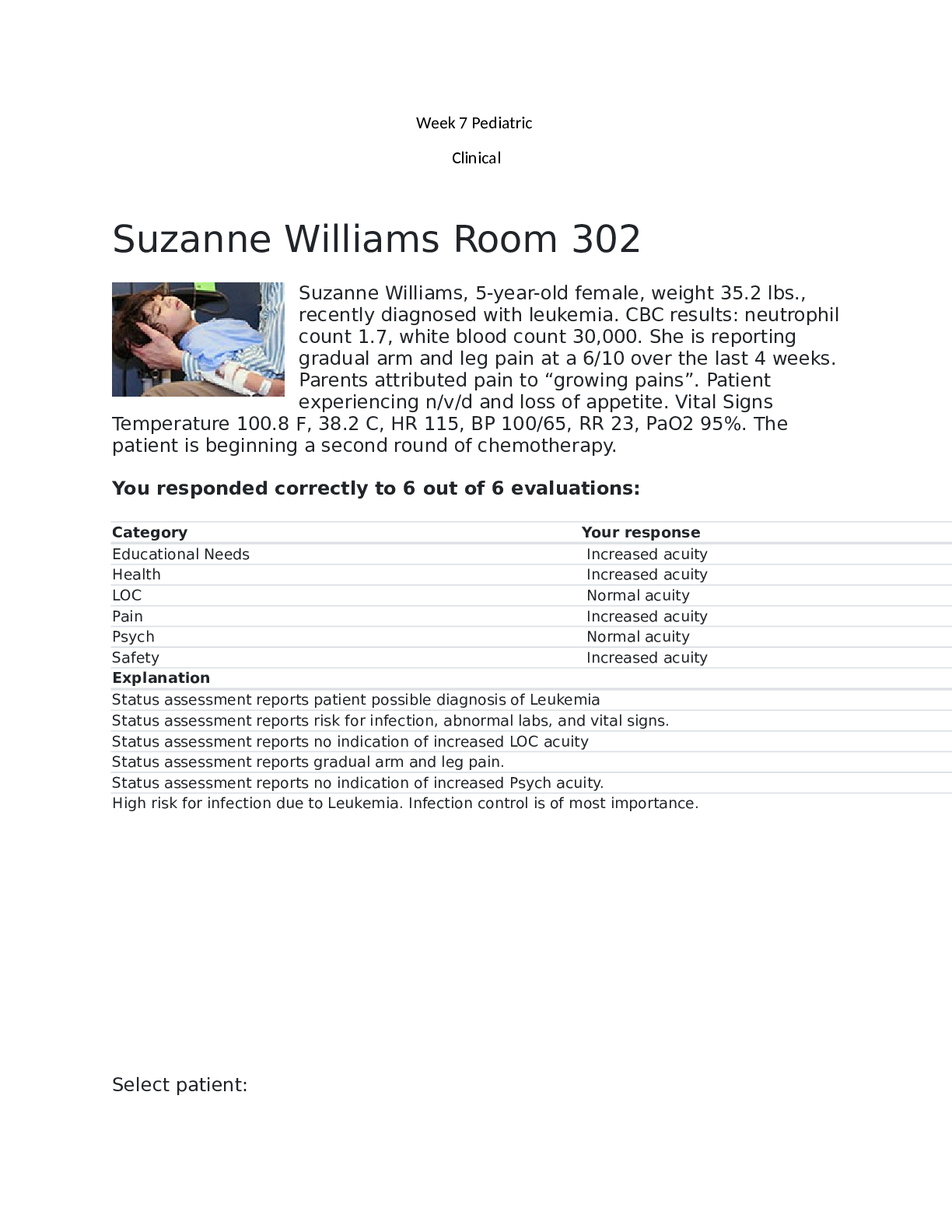
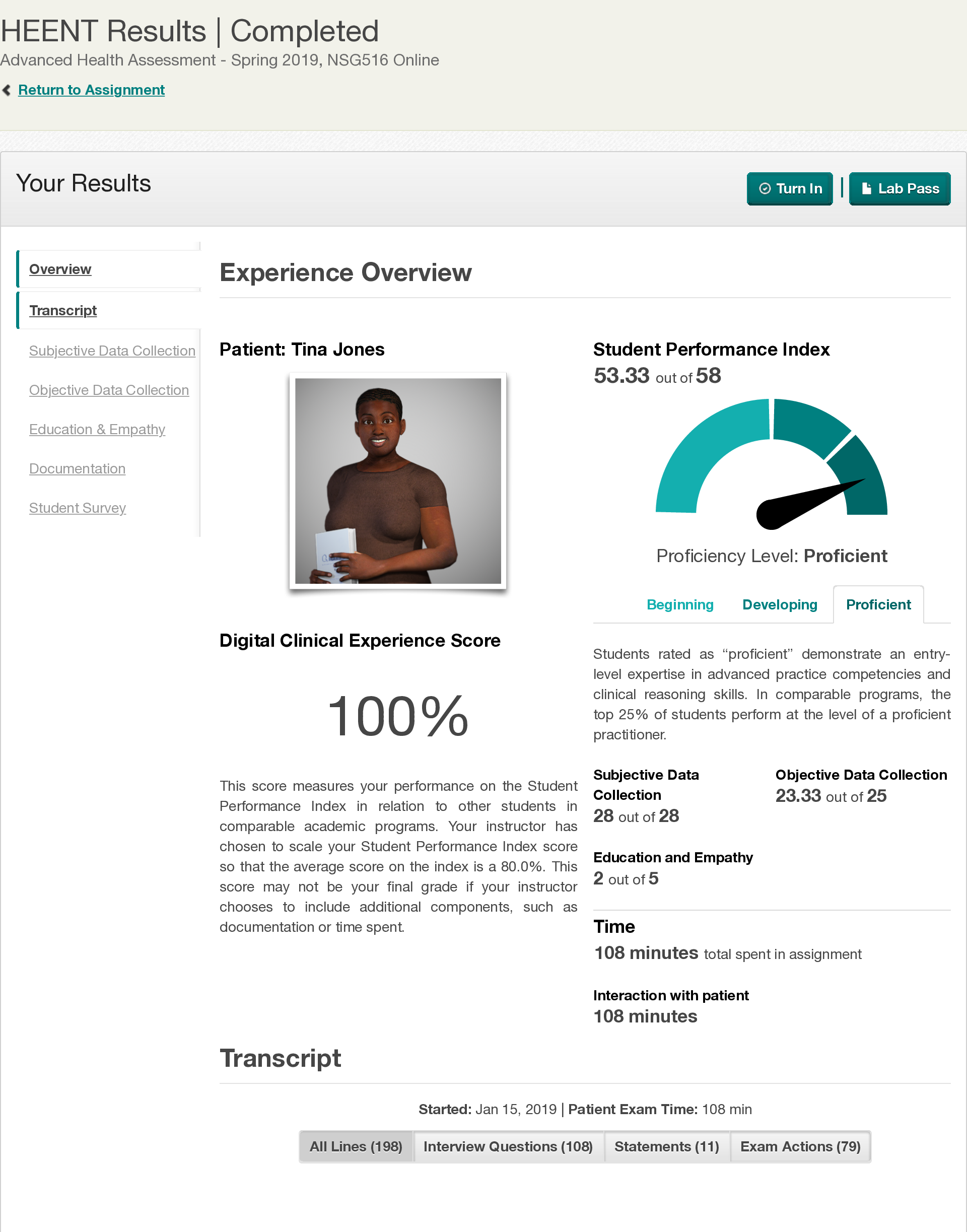
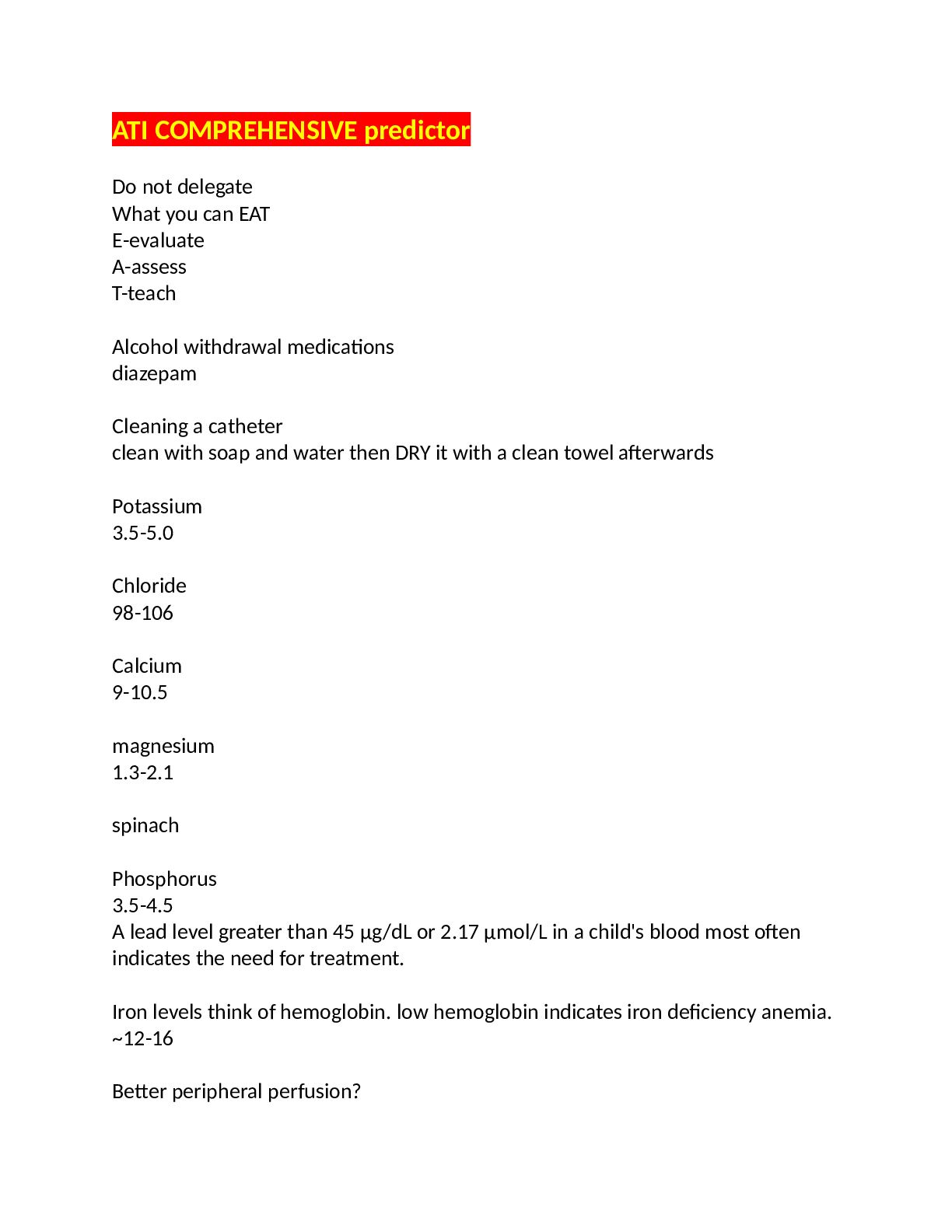
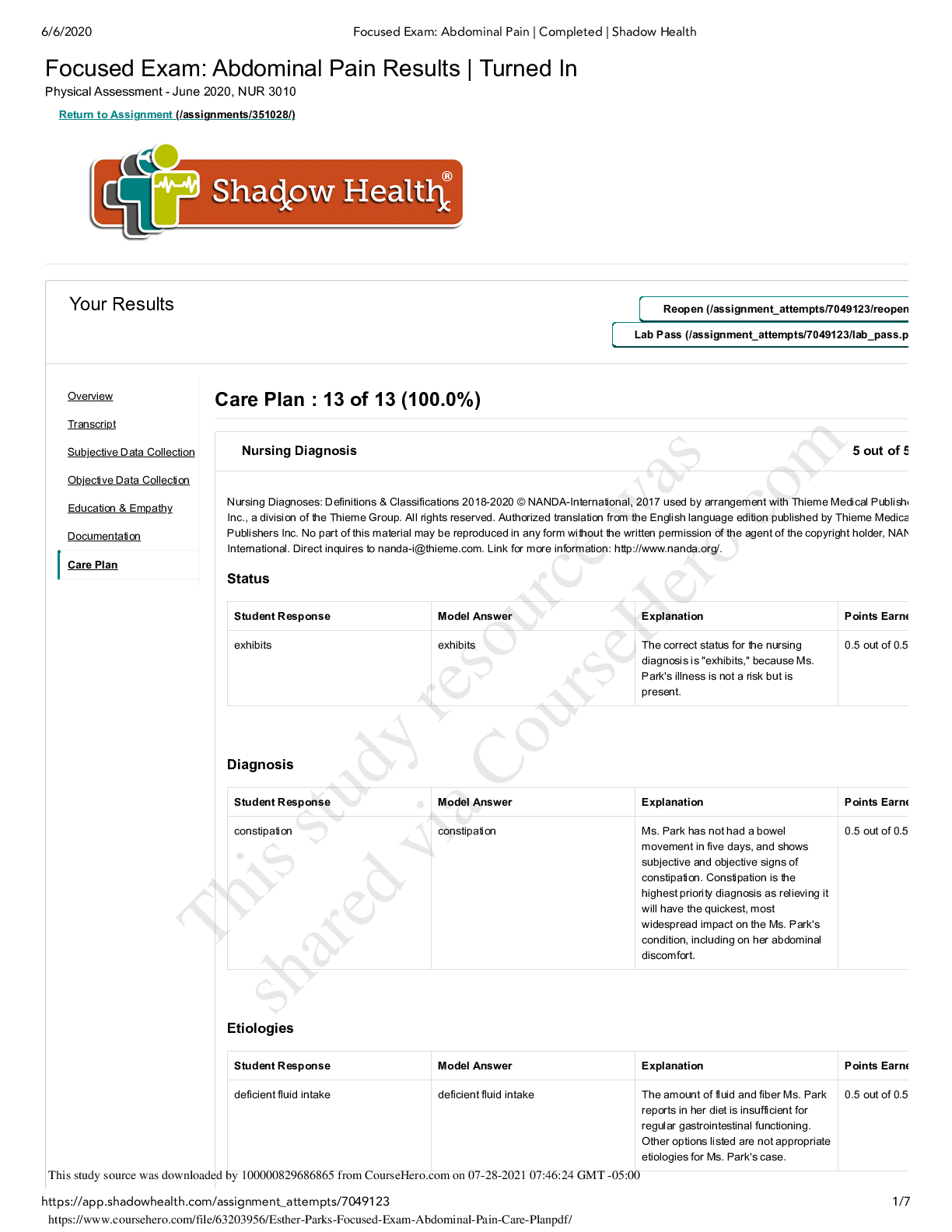
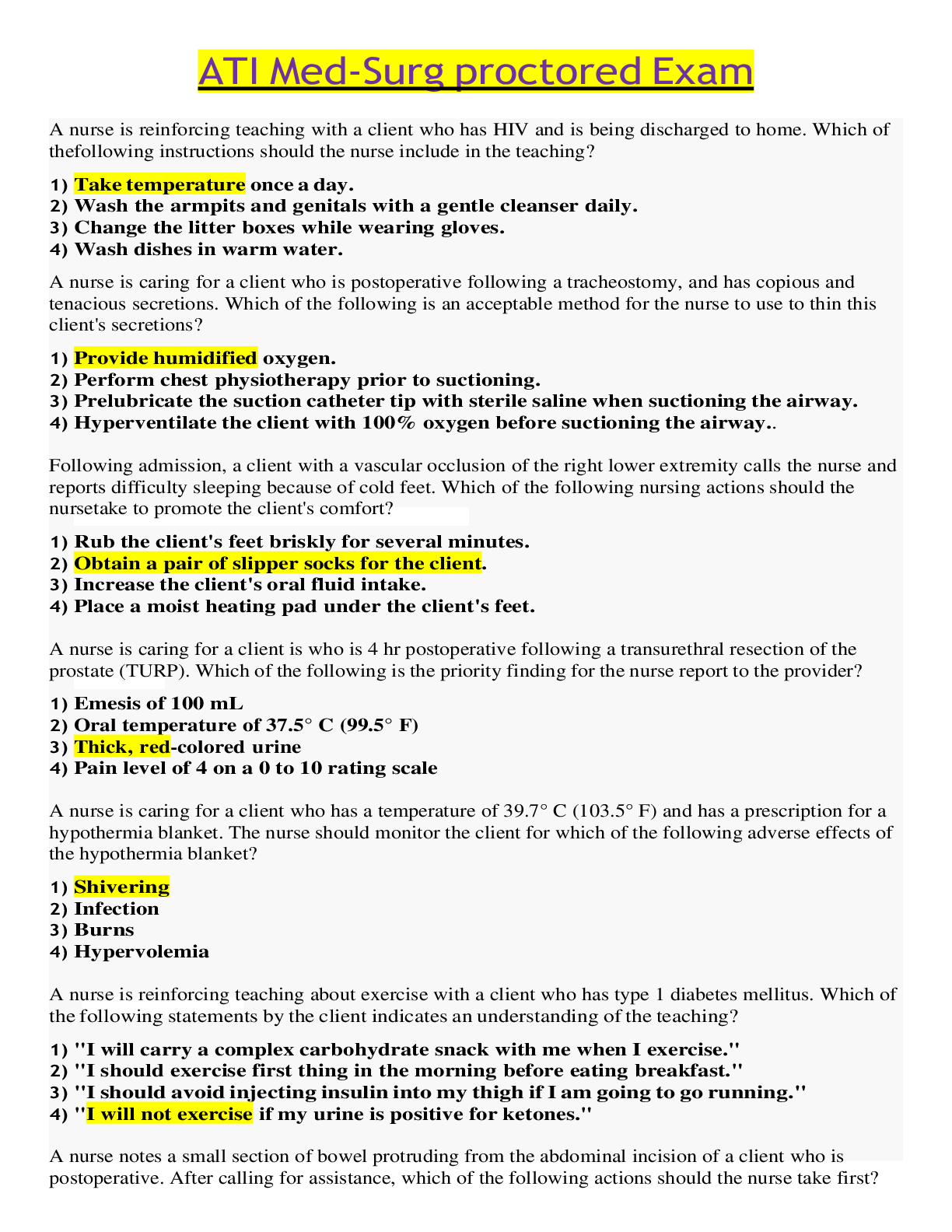
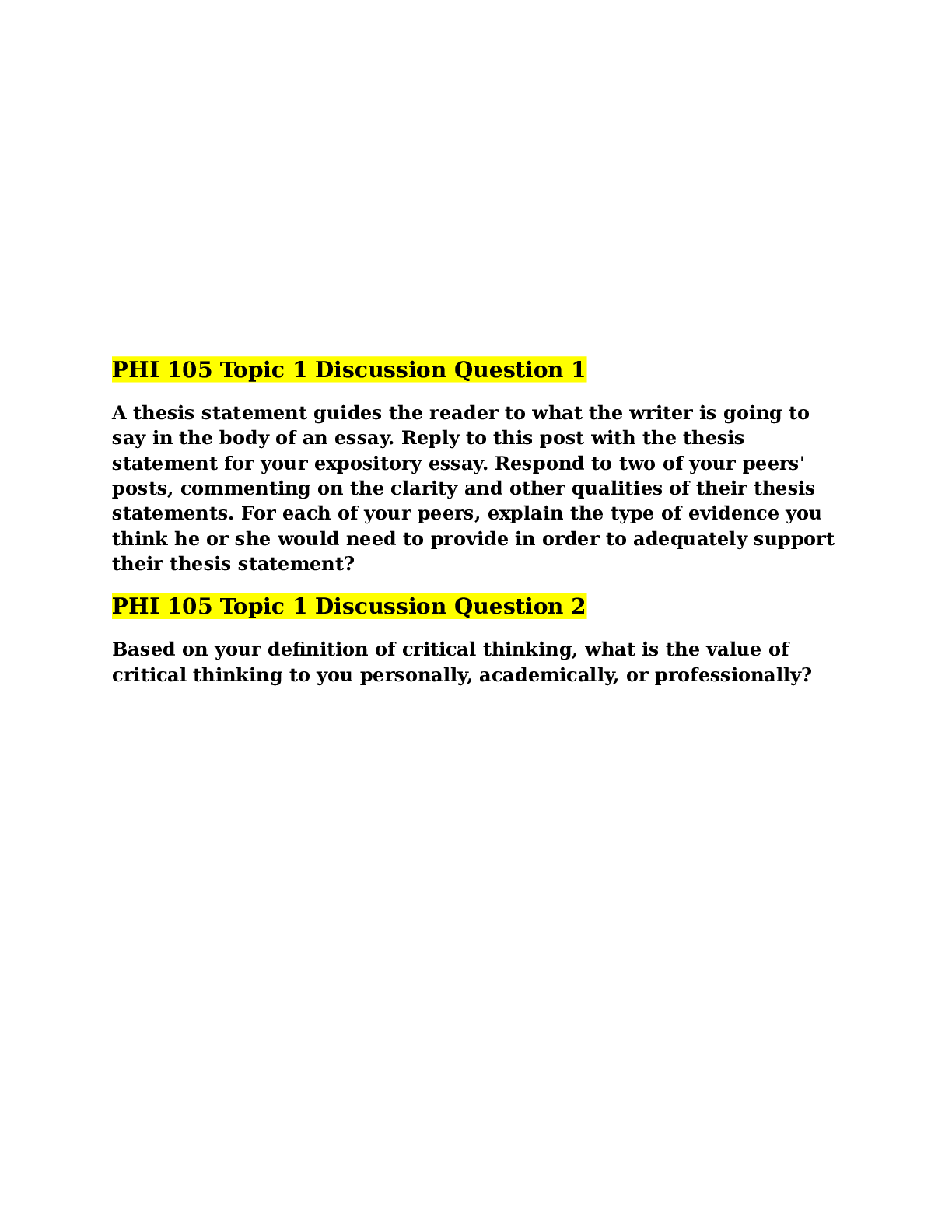
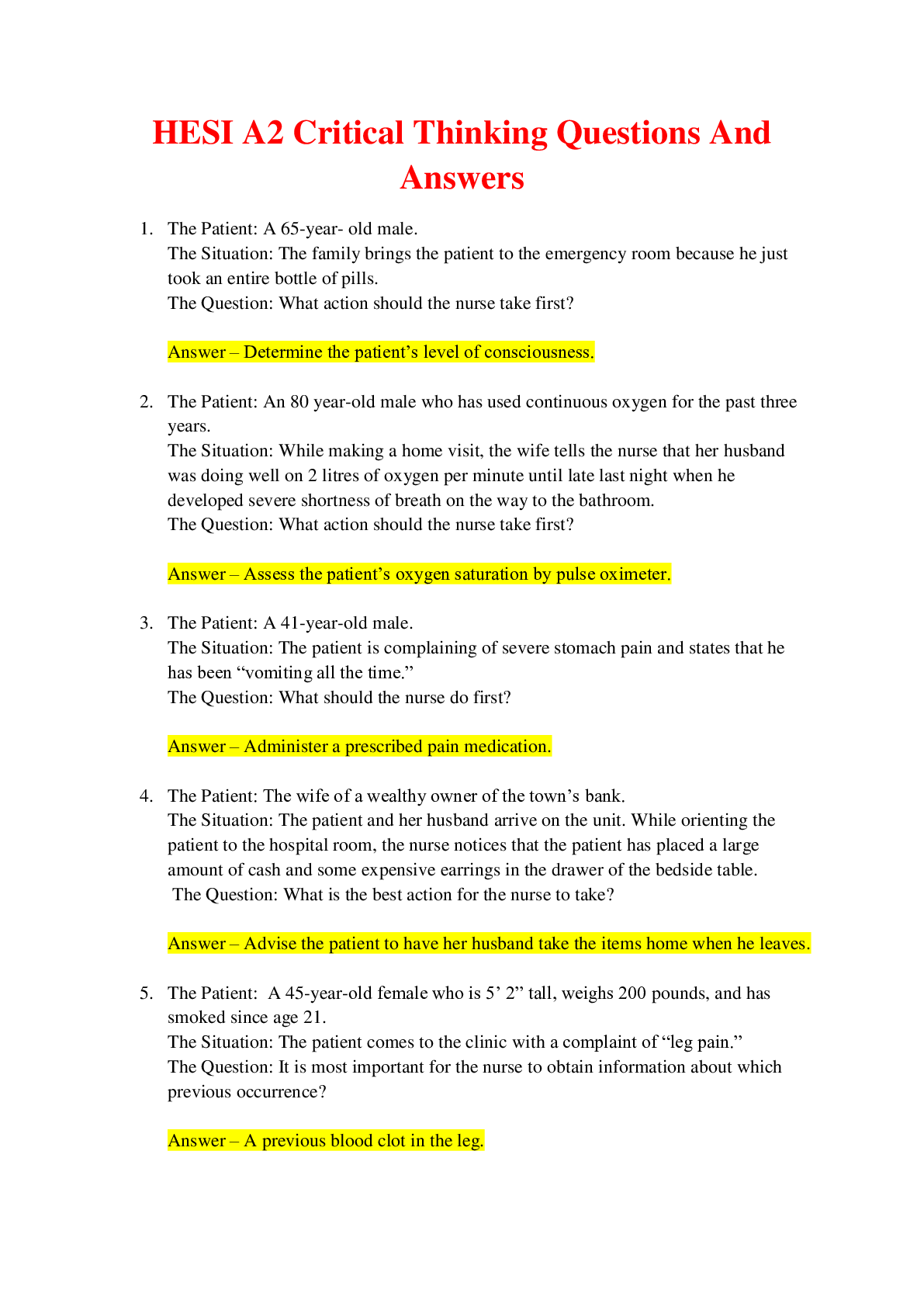
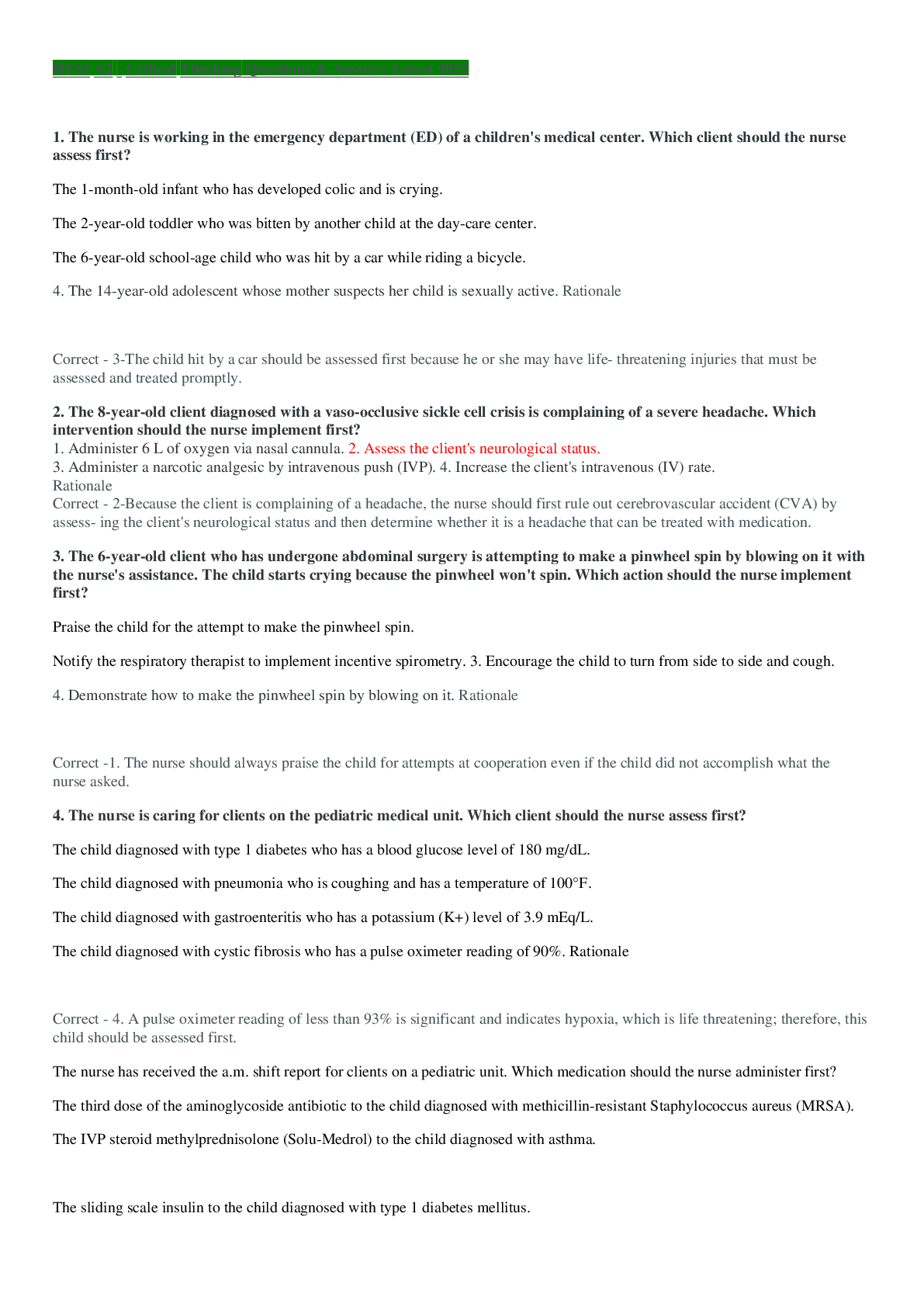
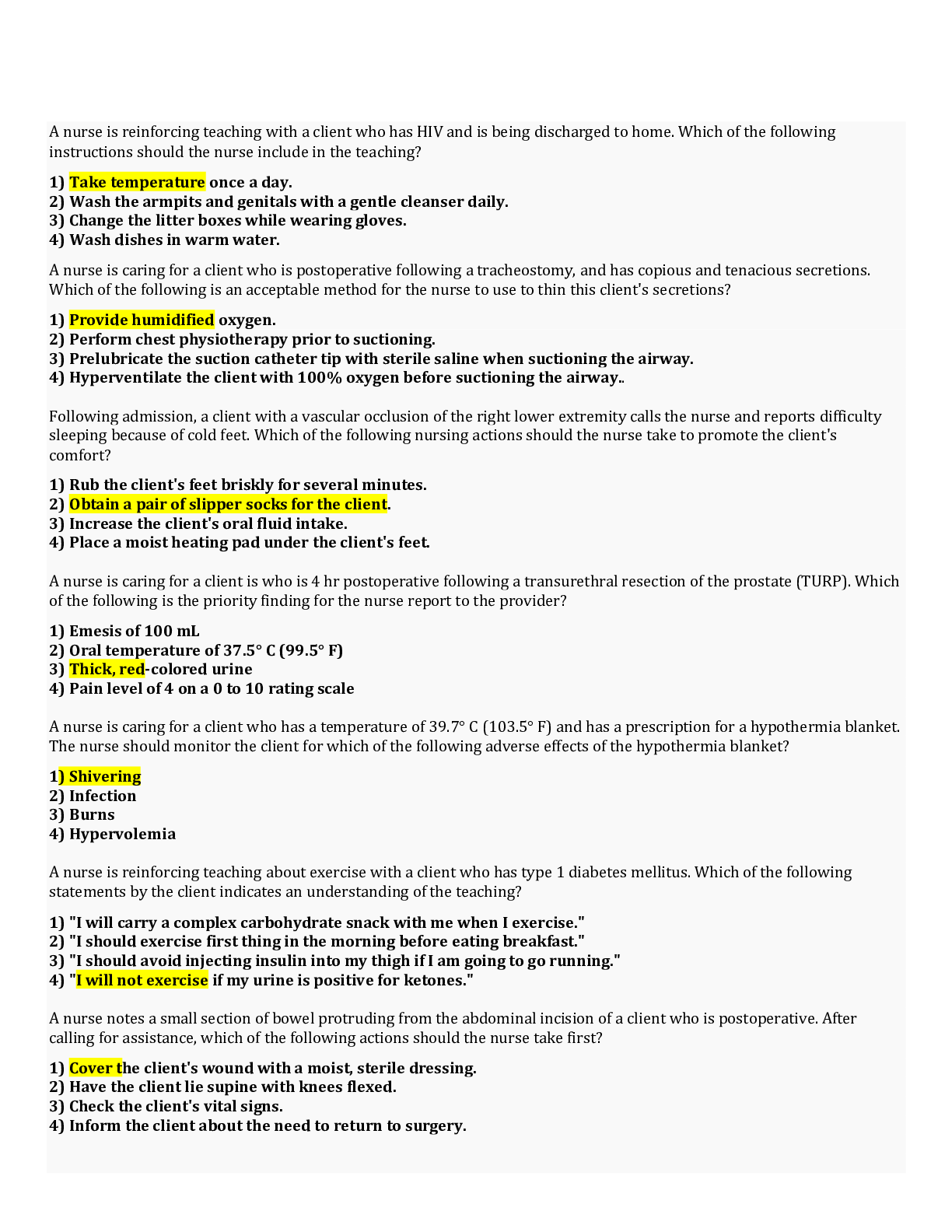
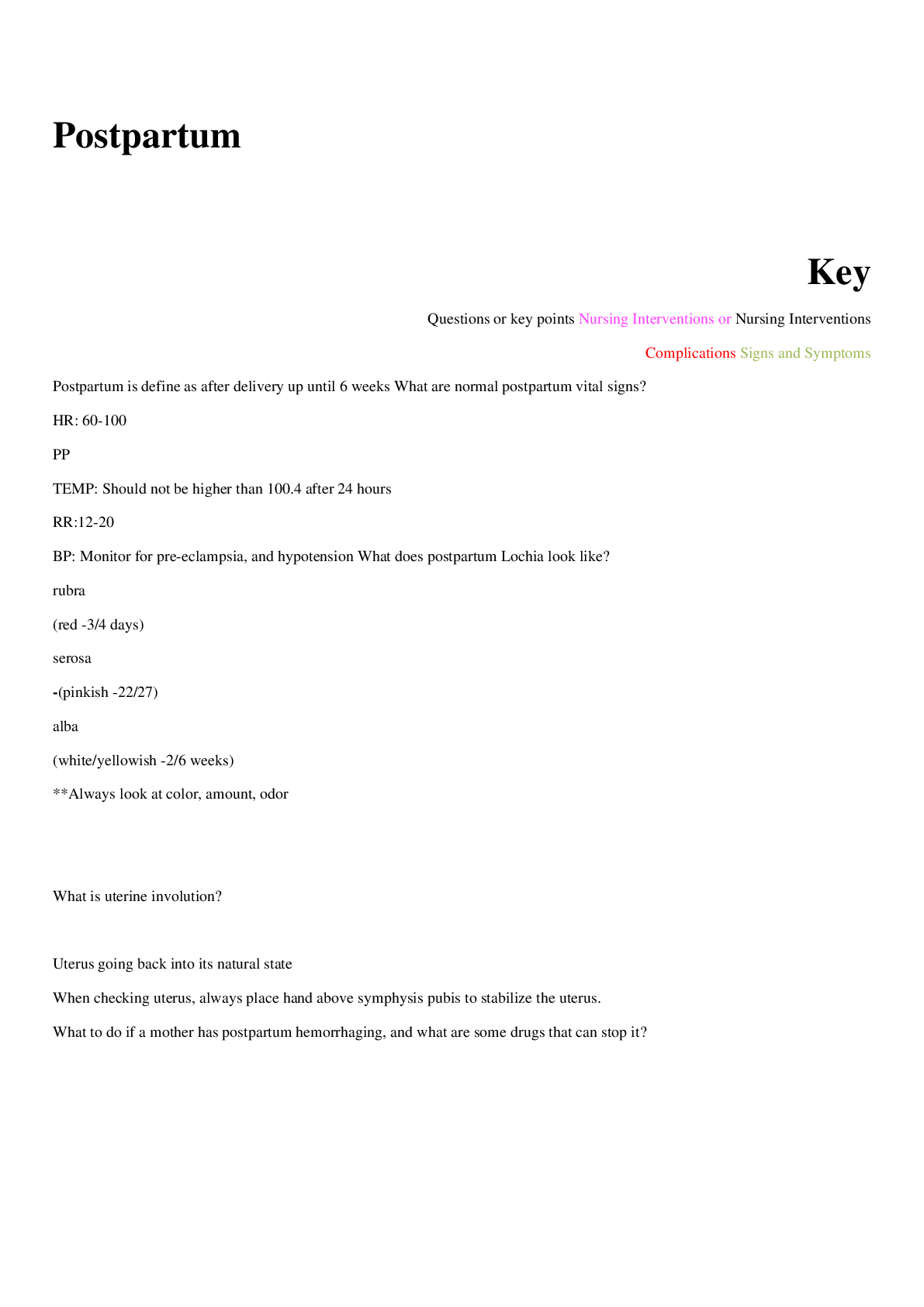
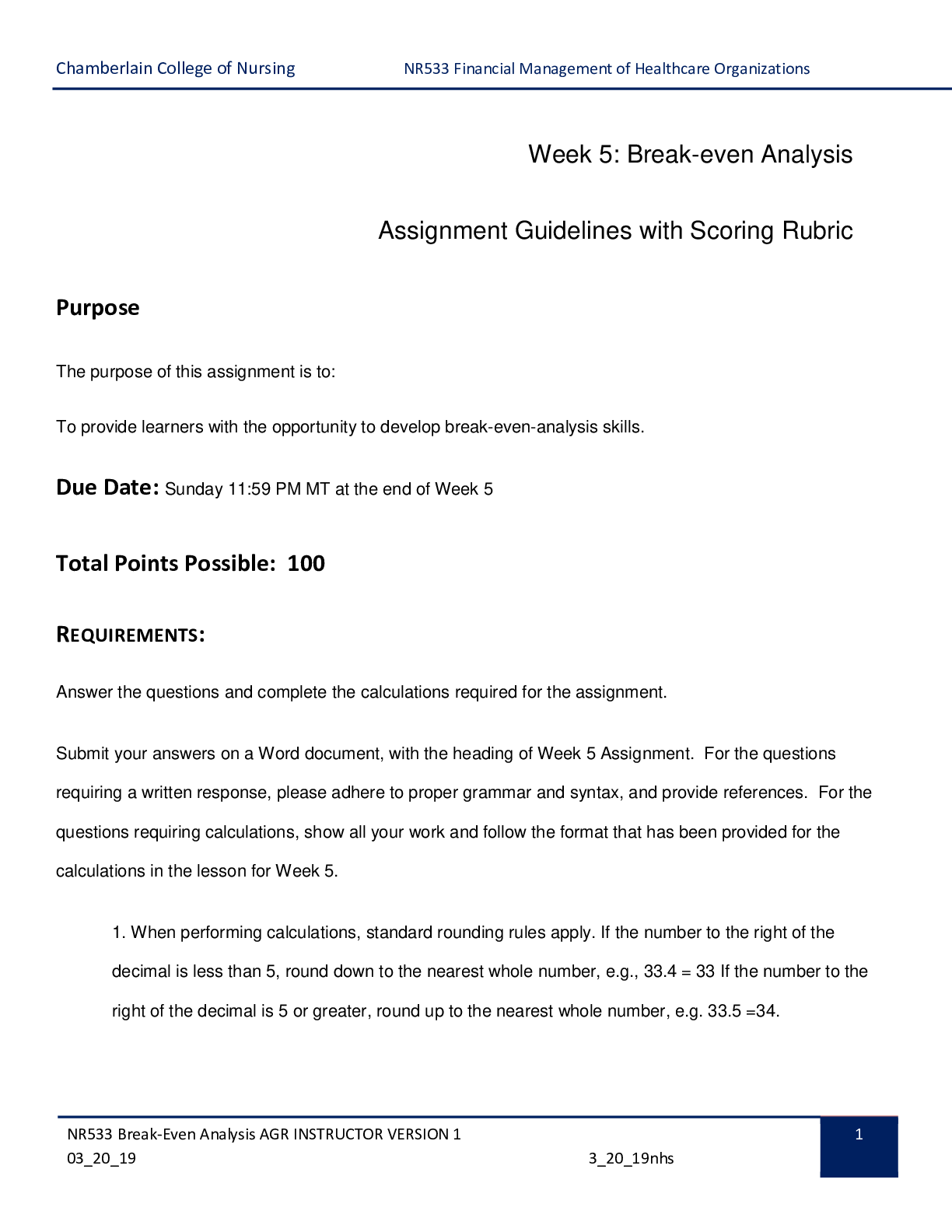
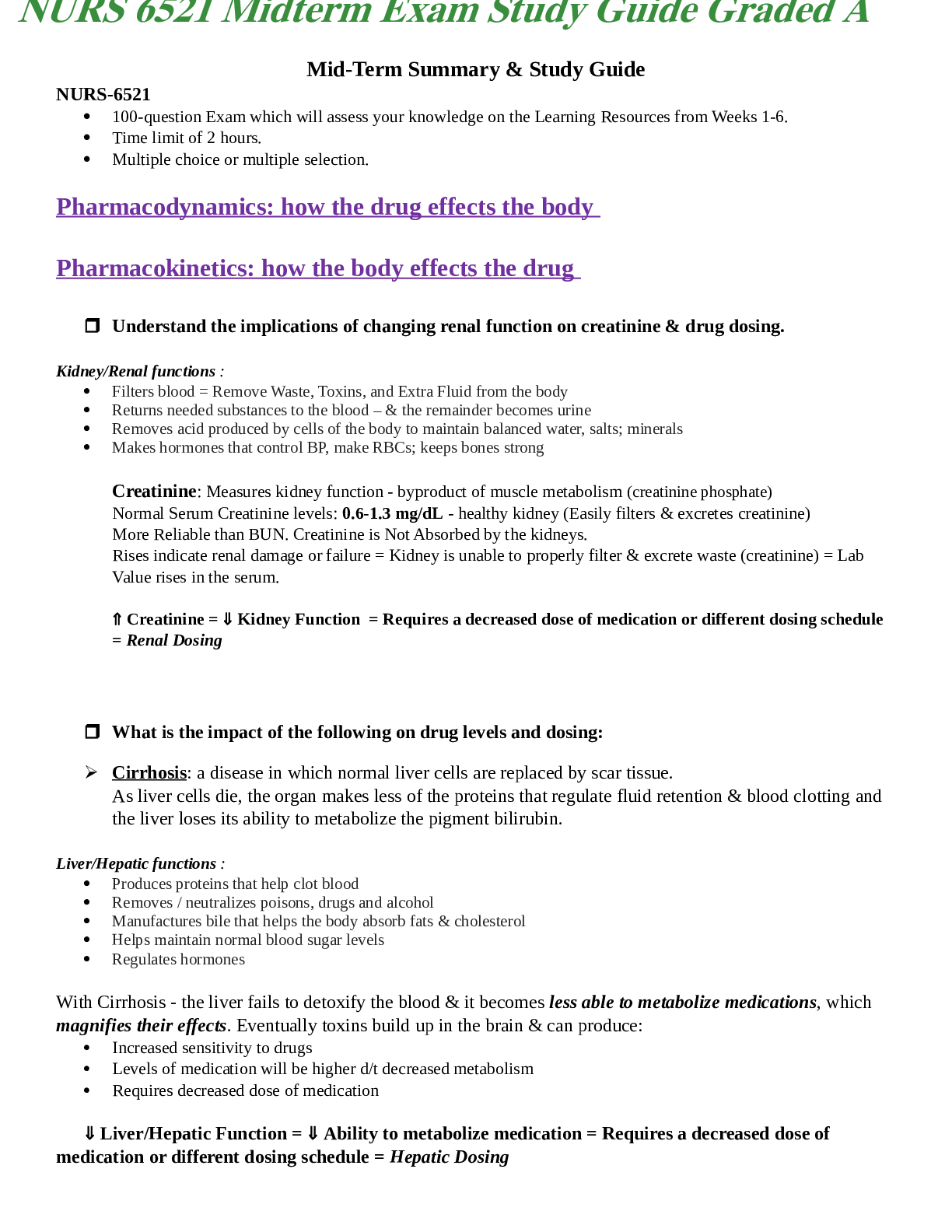
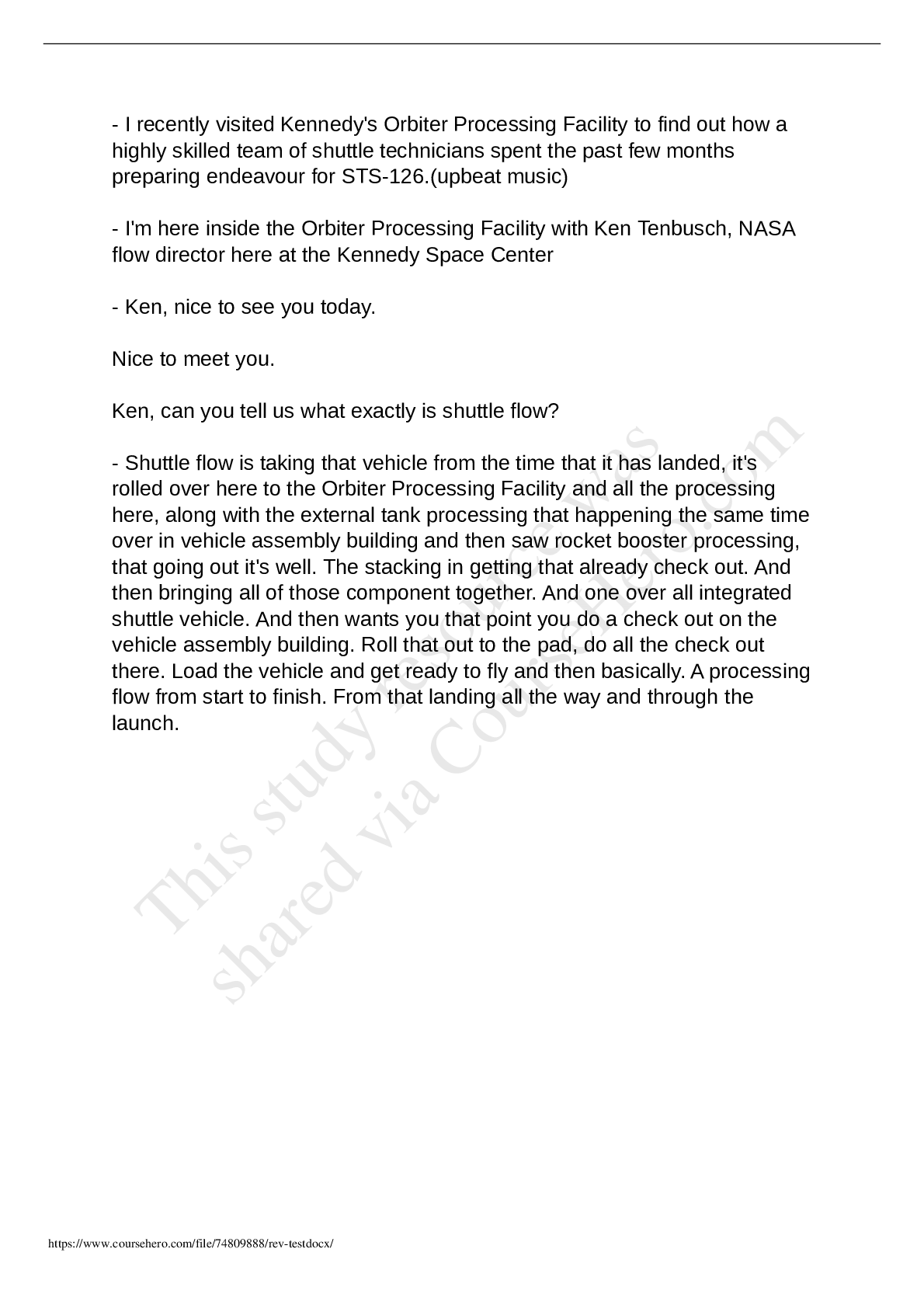
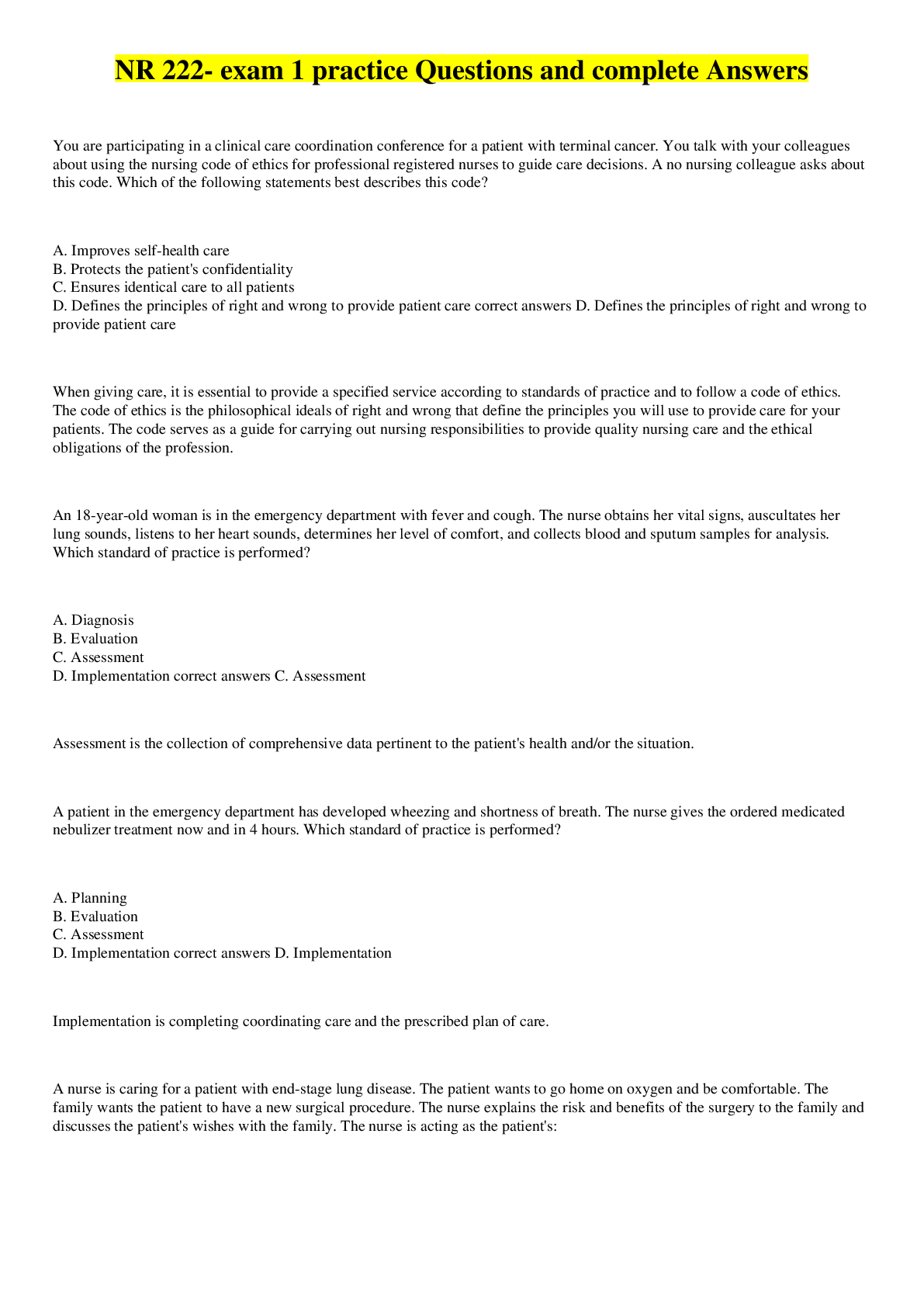
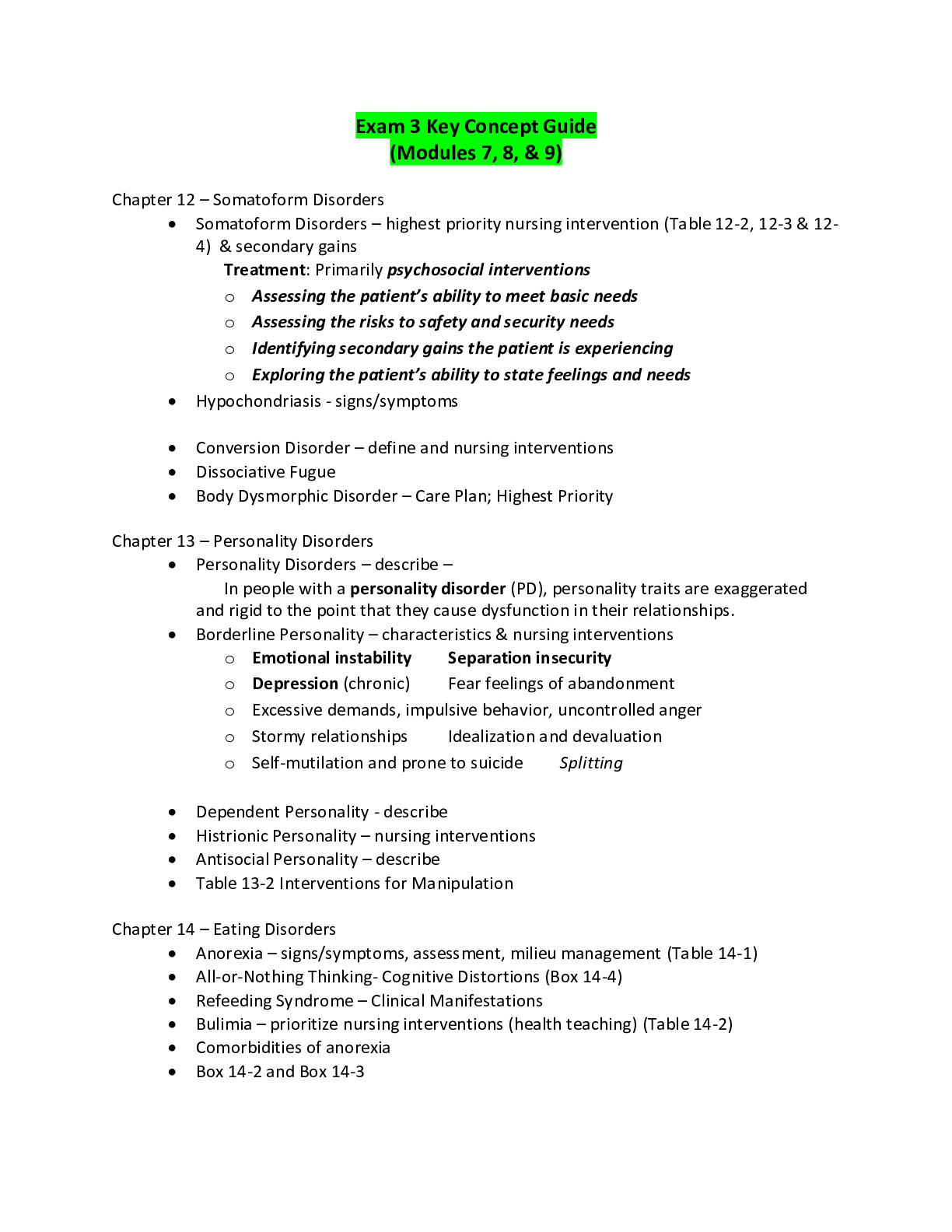
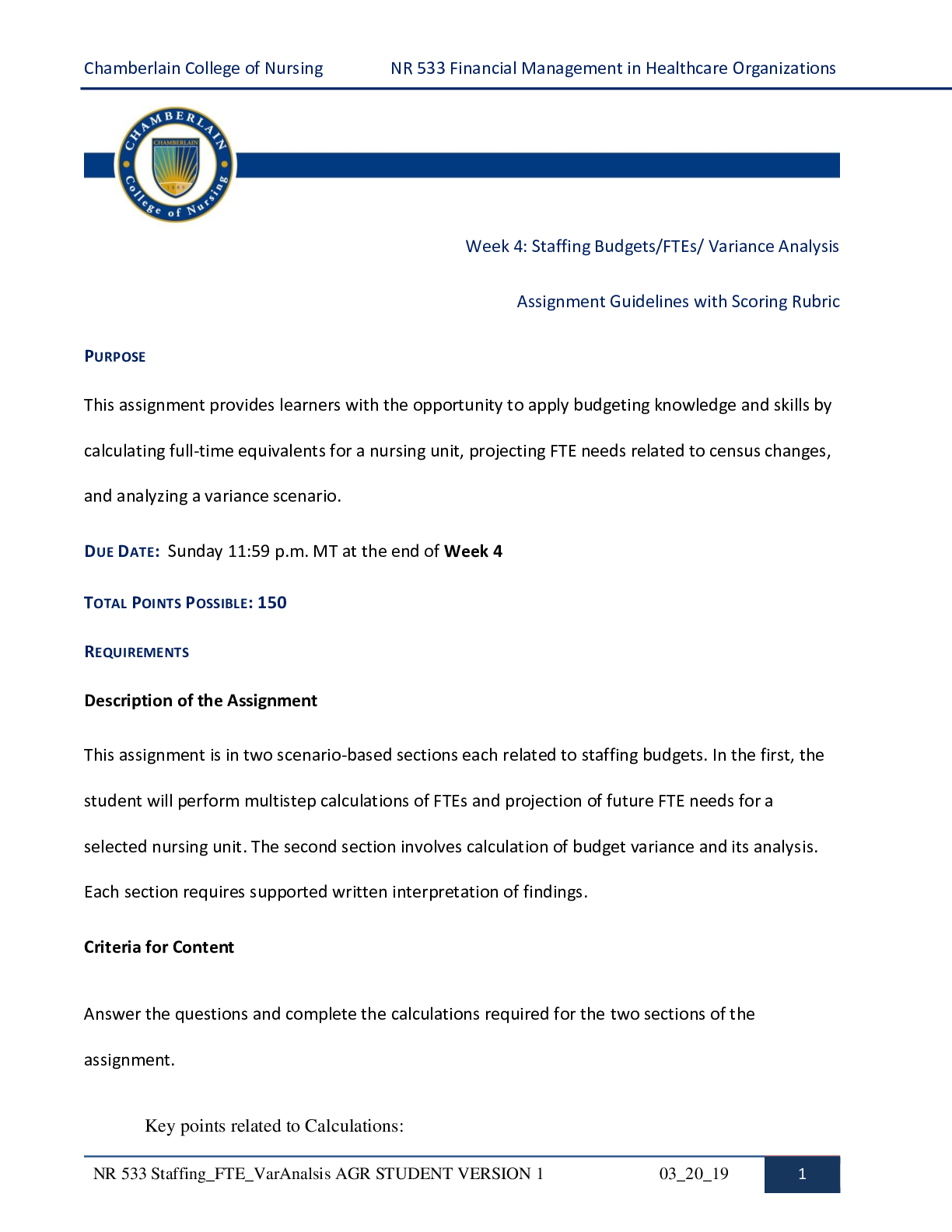
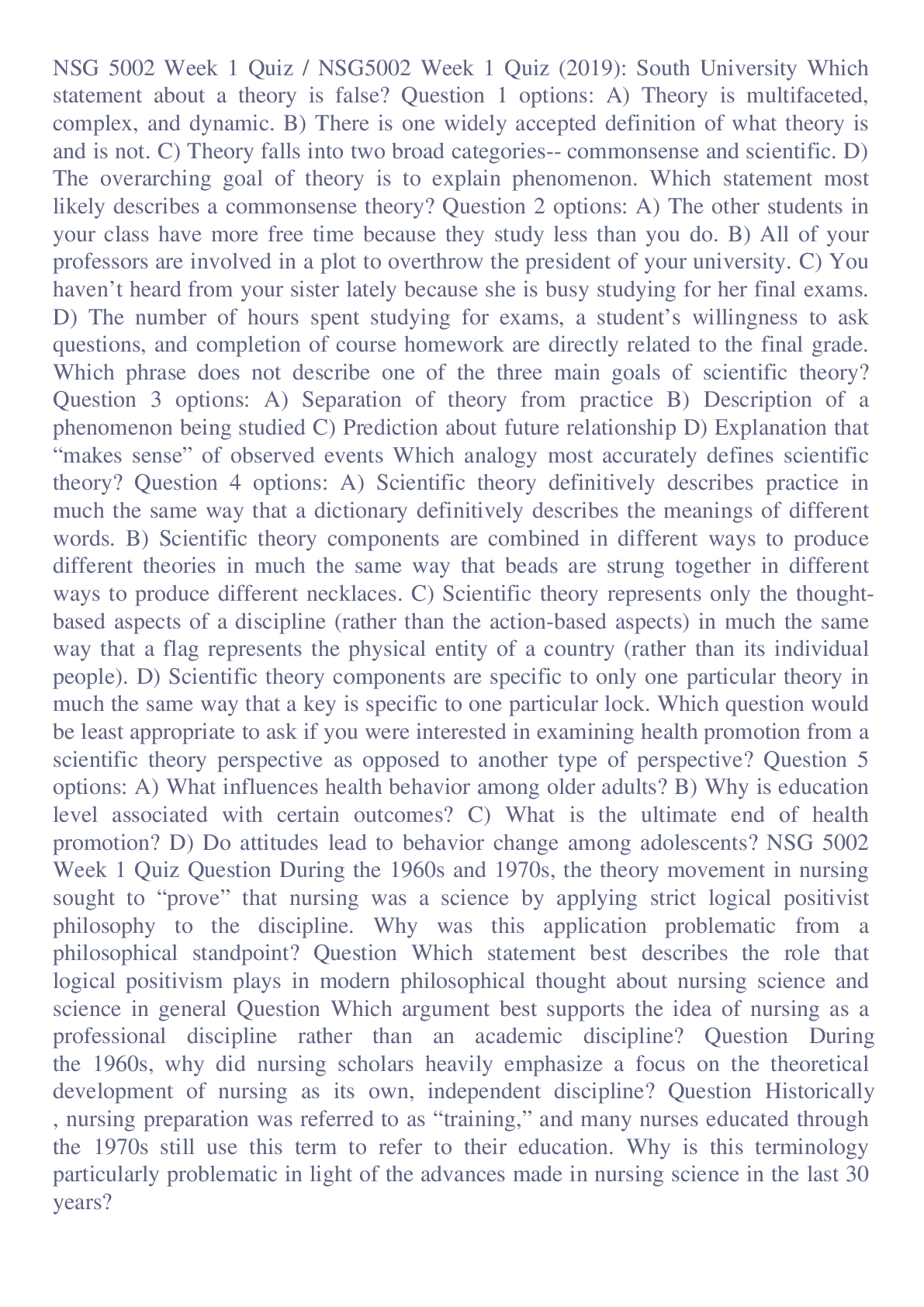
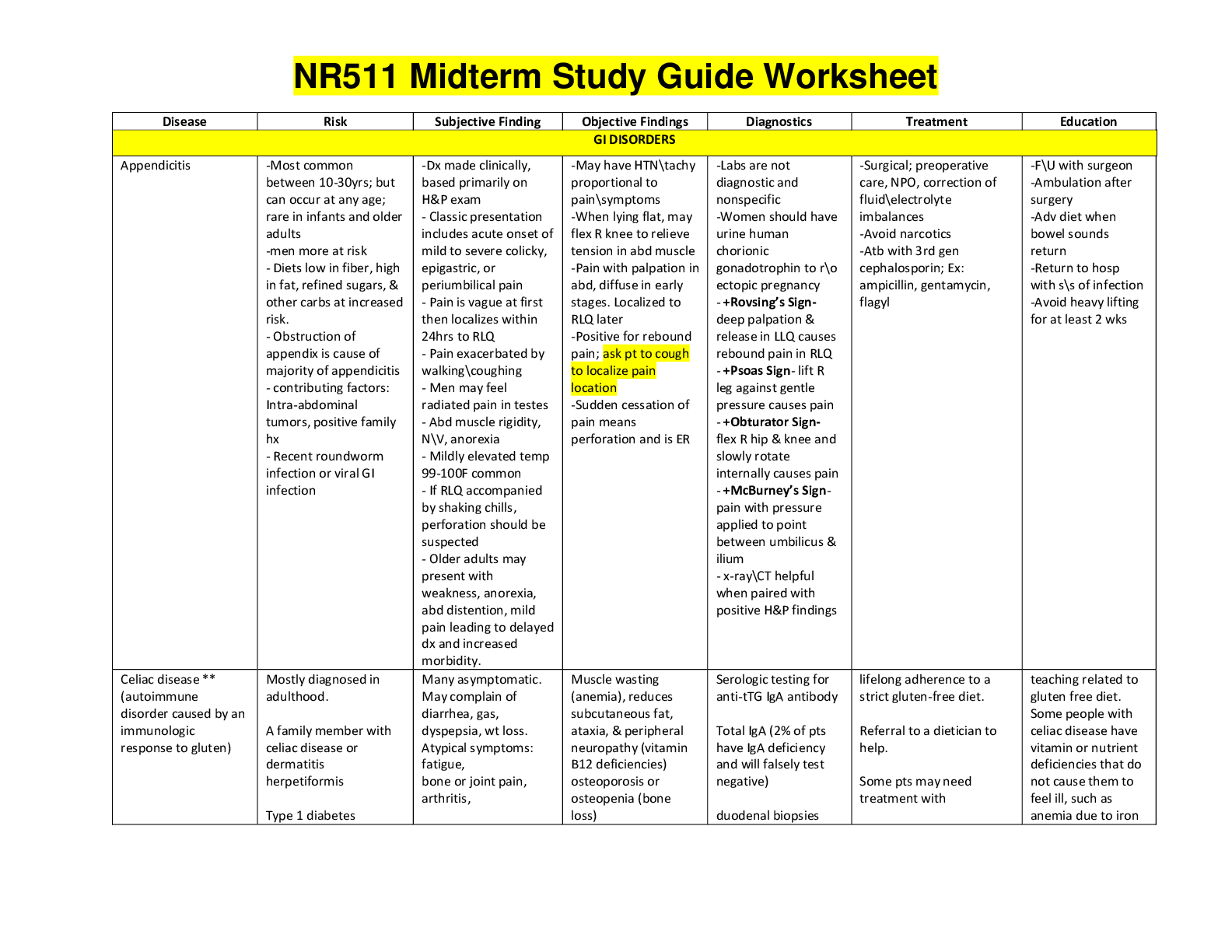
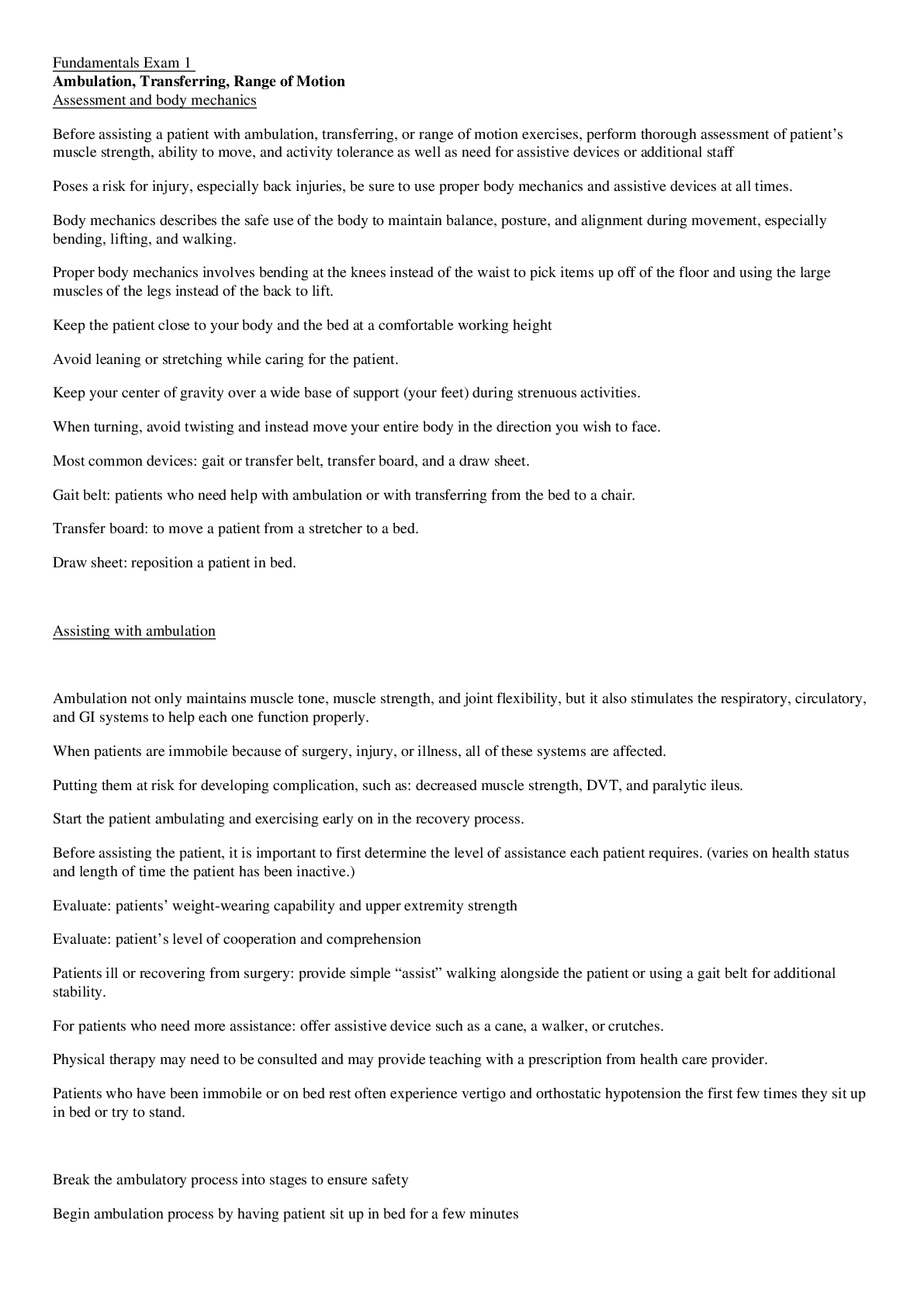

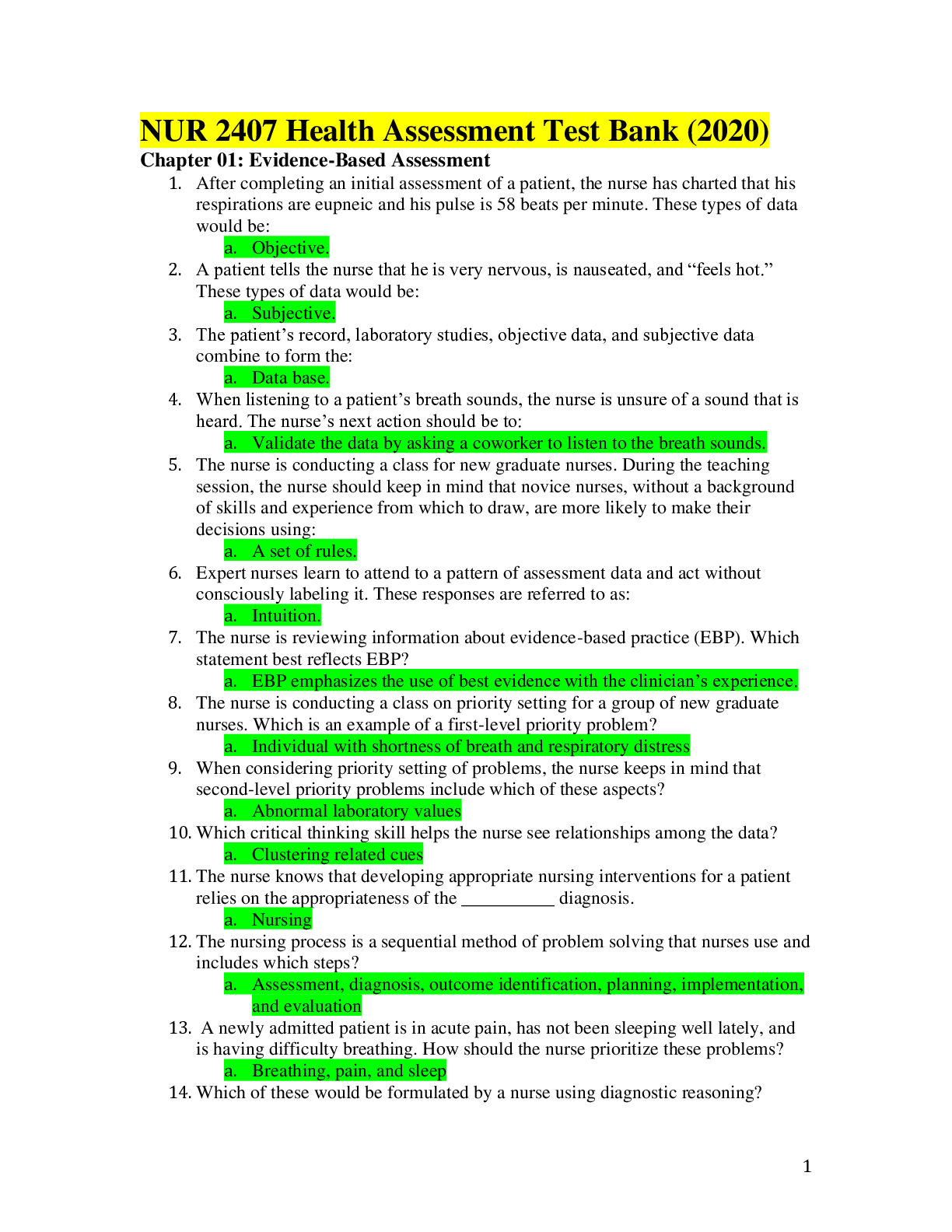
.png)
